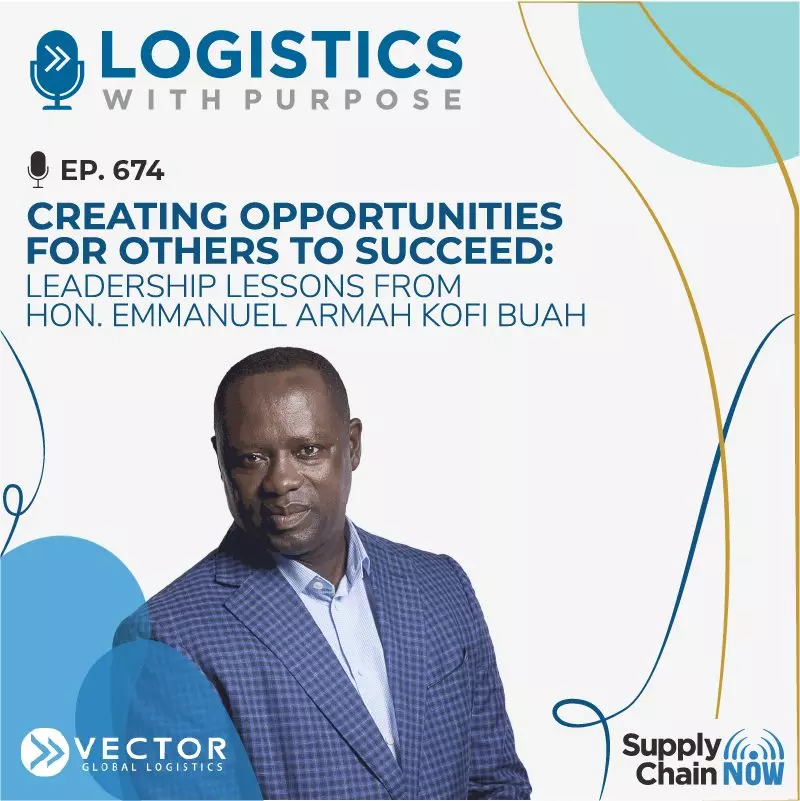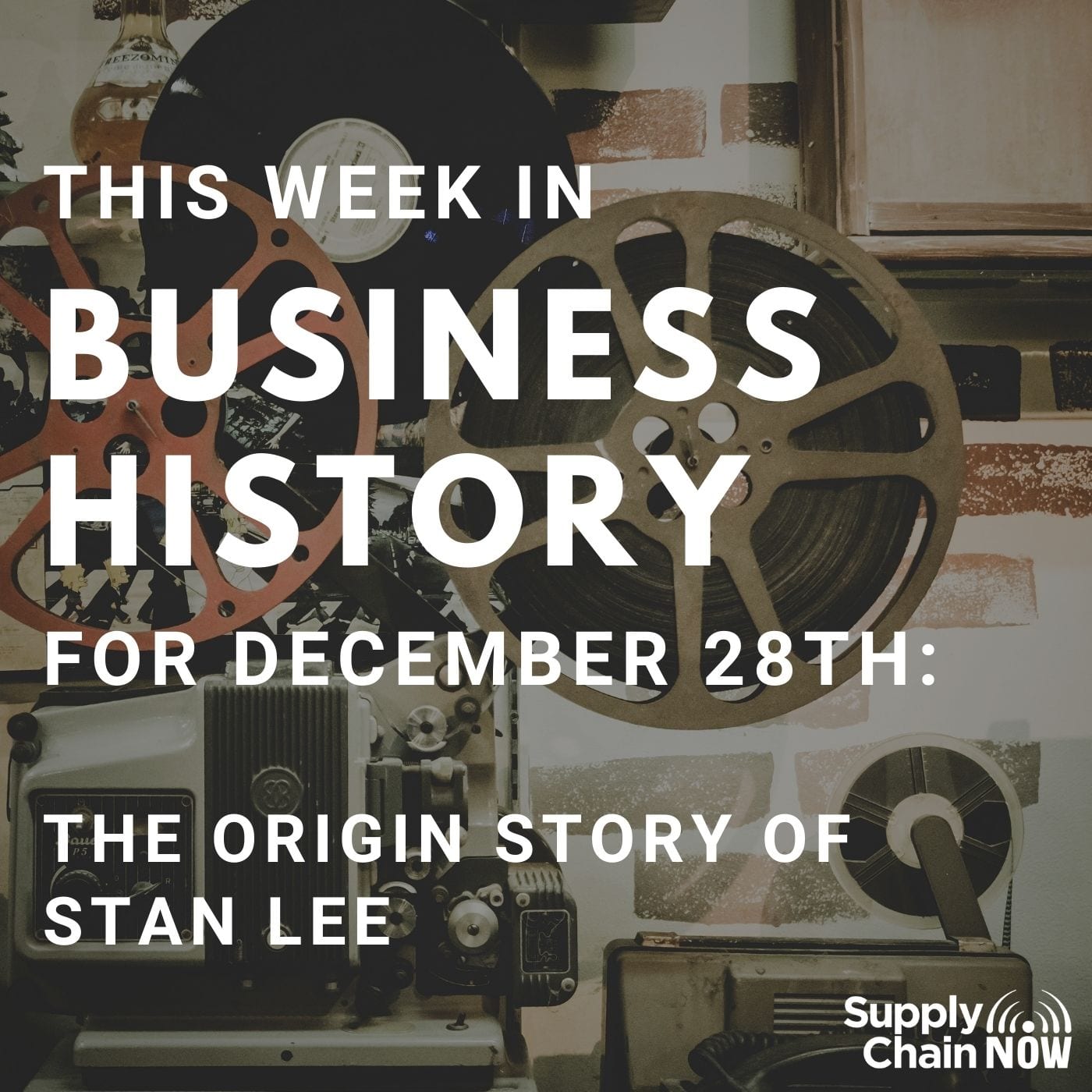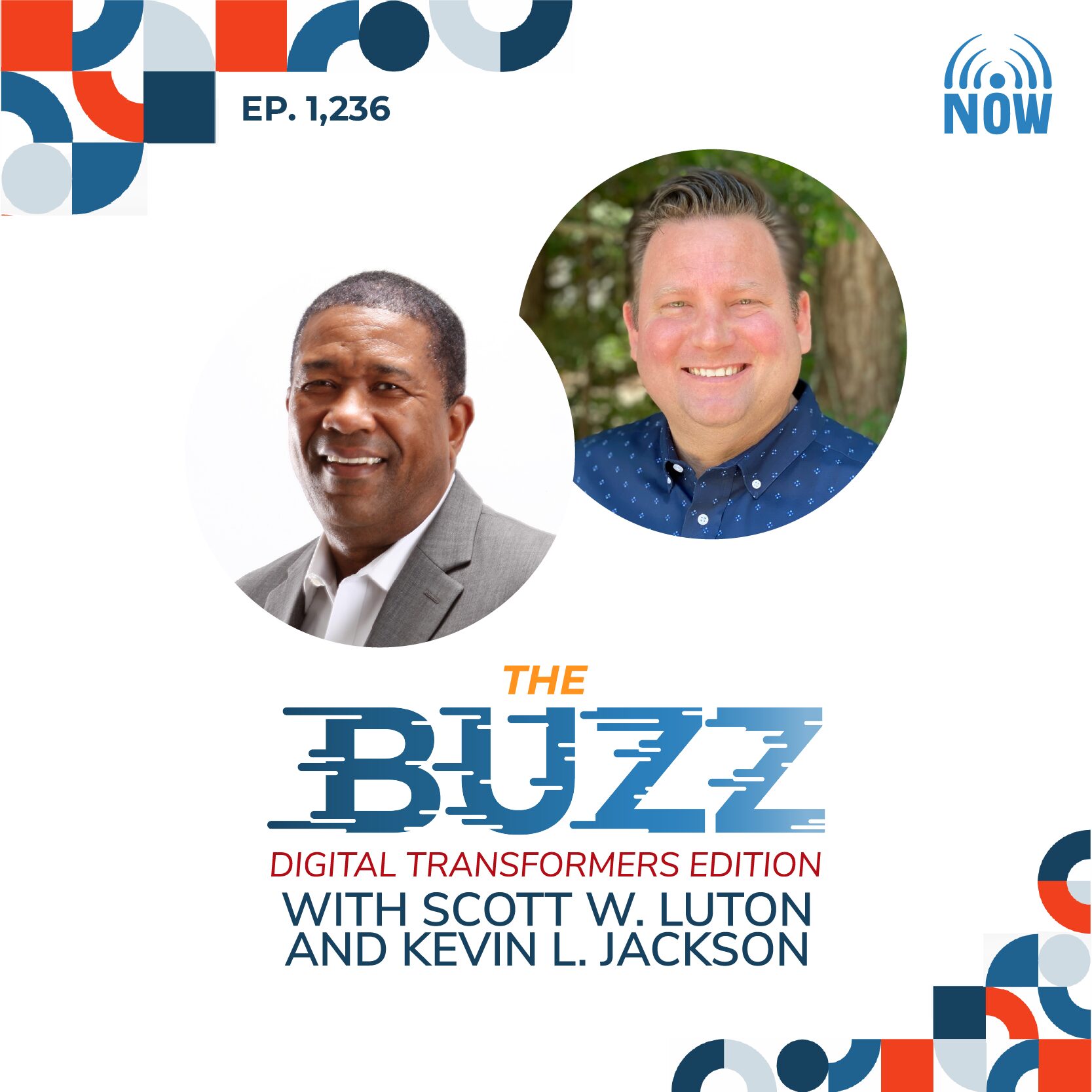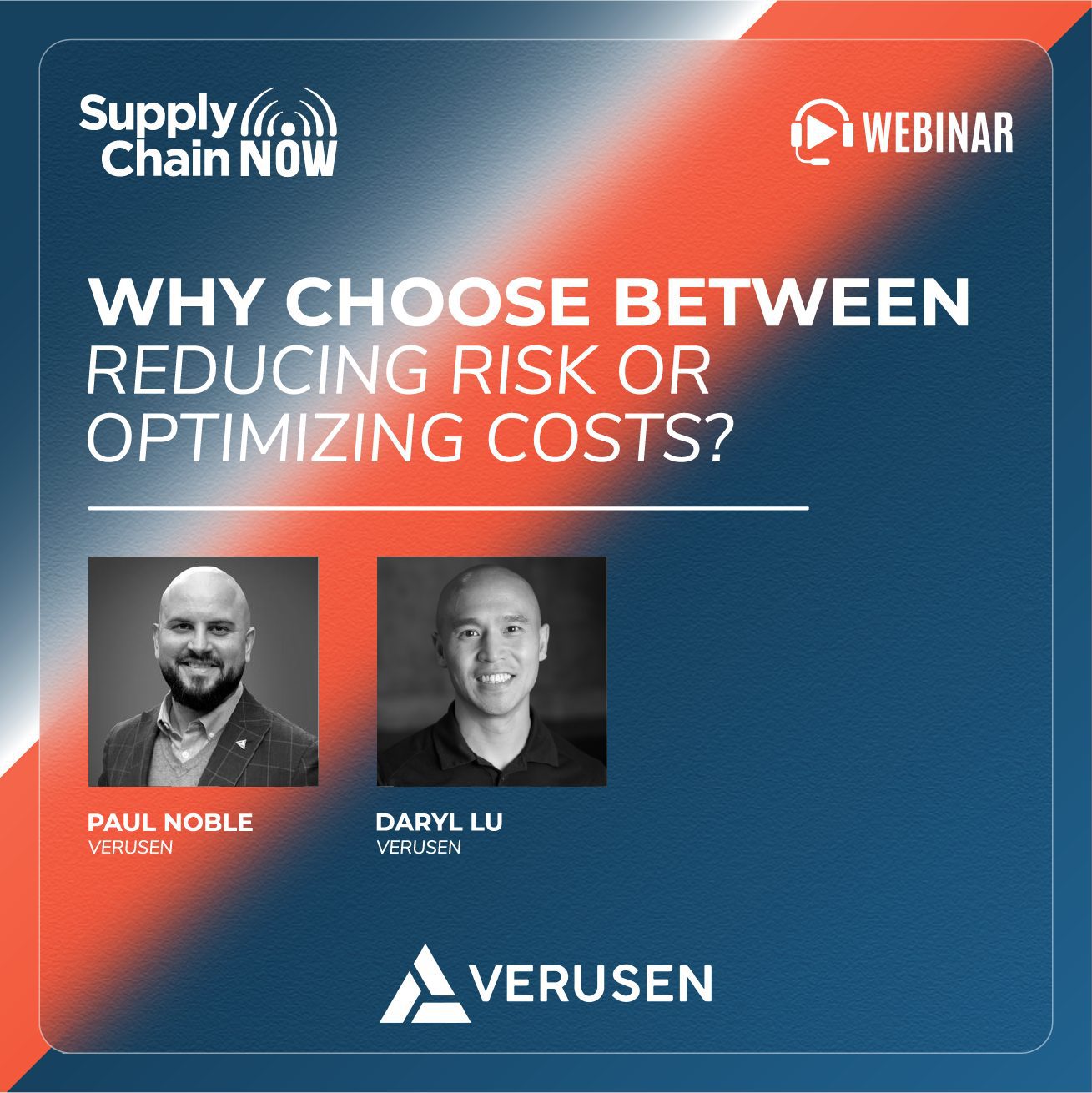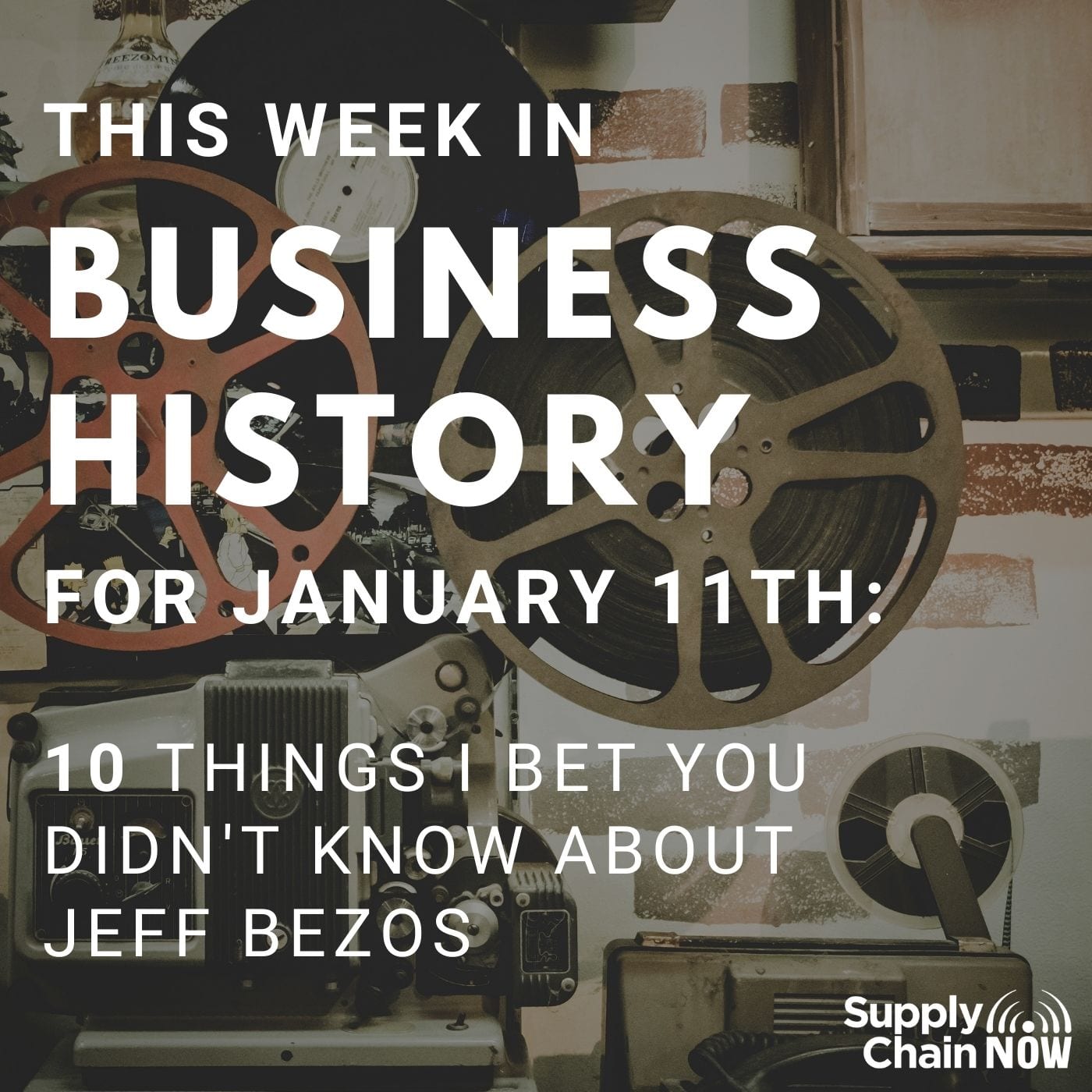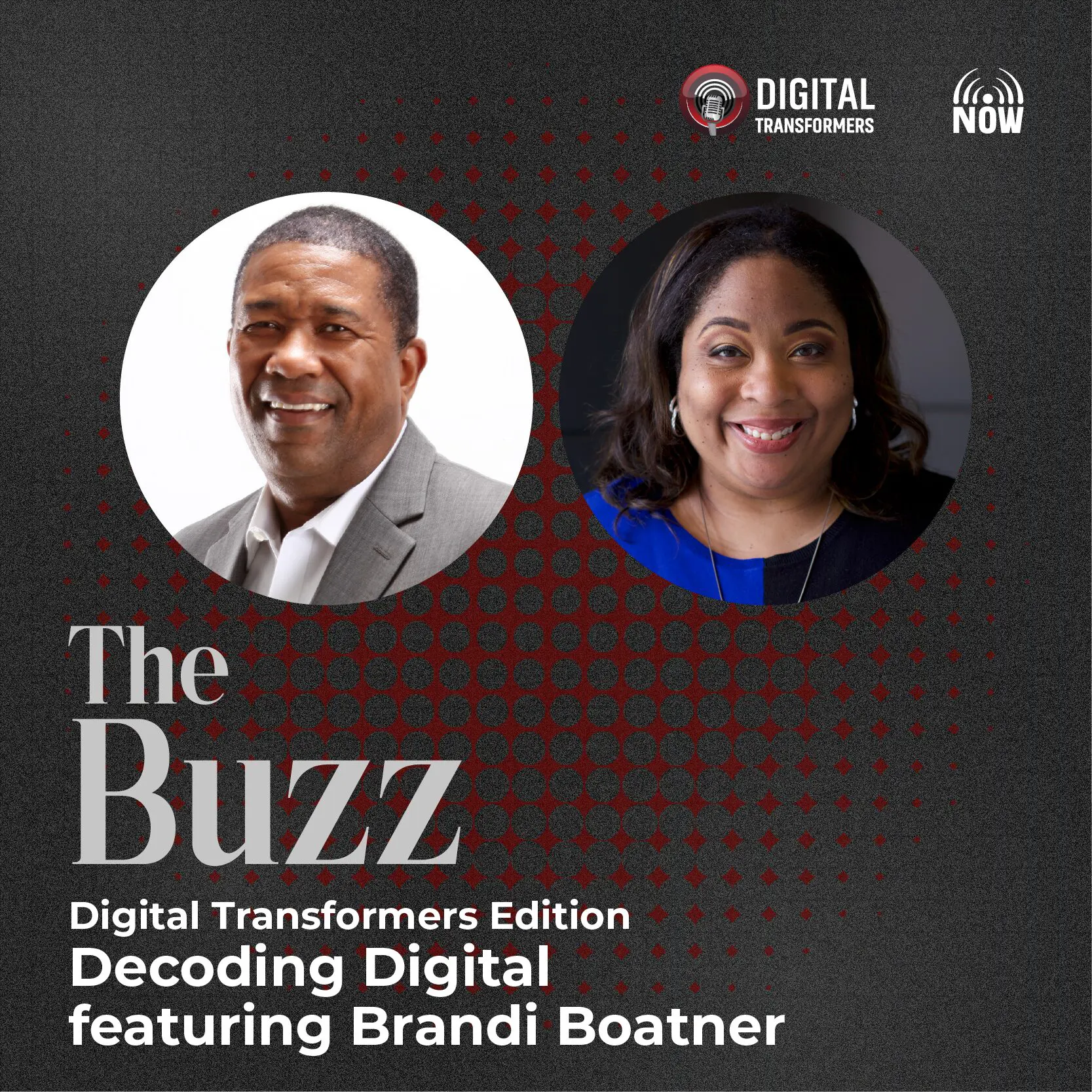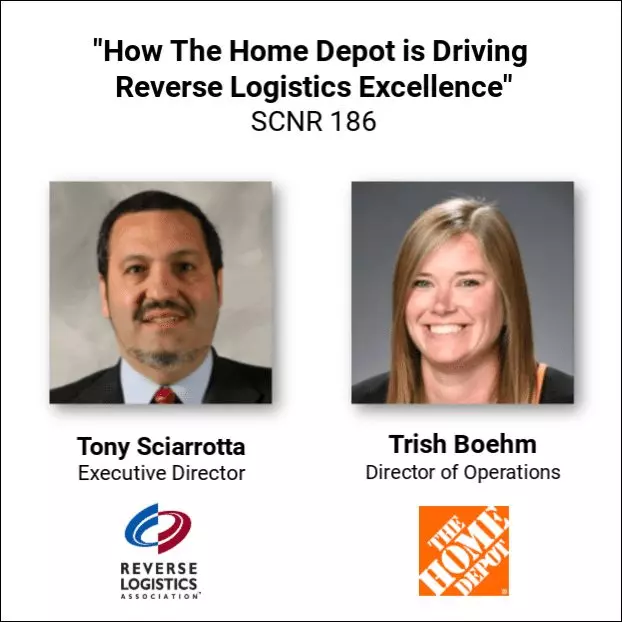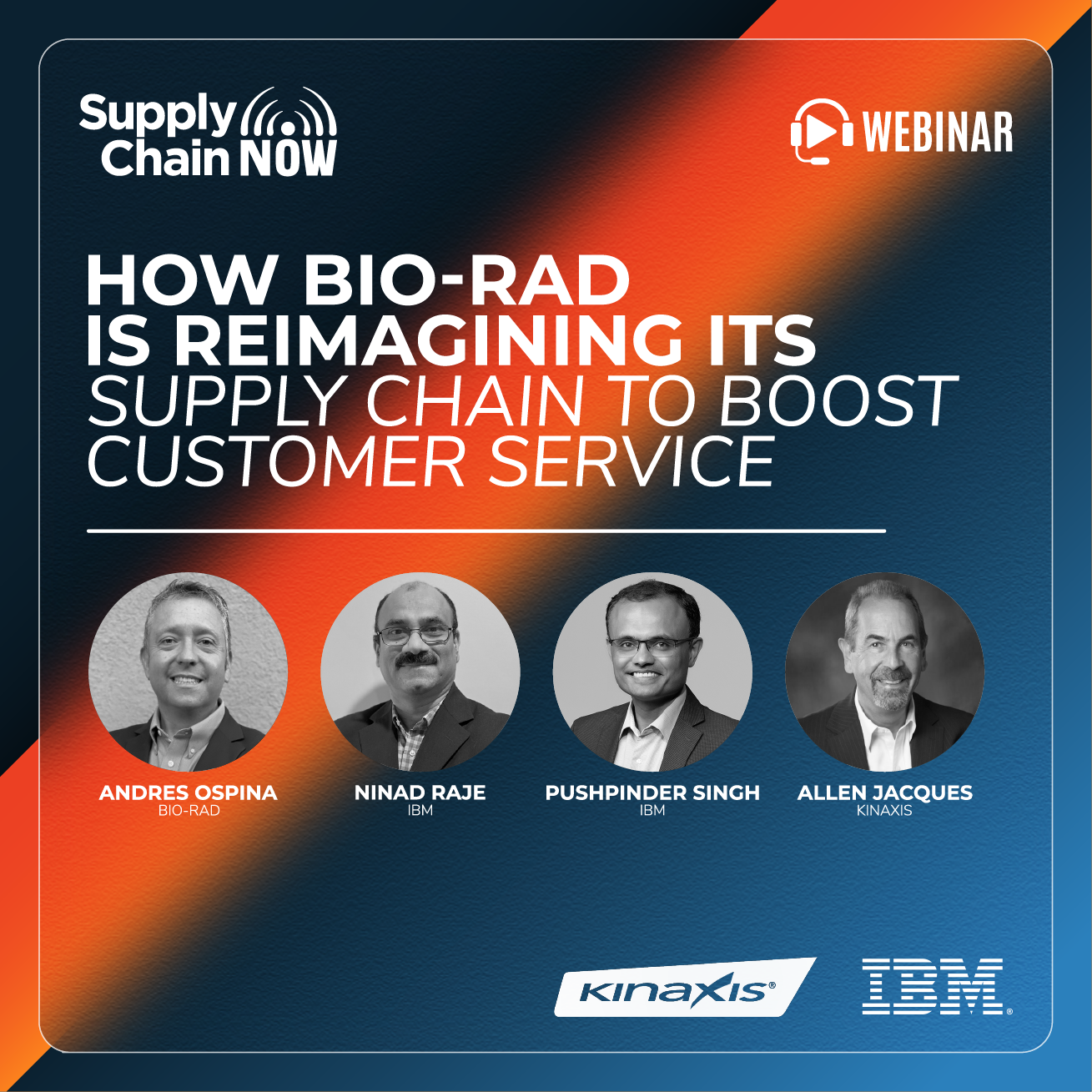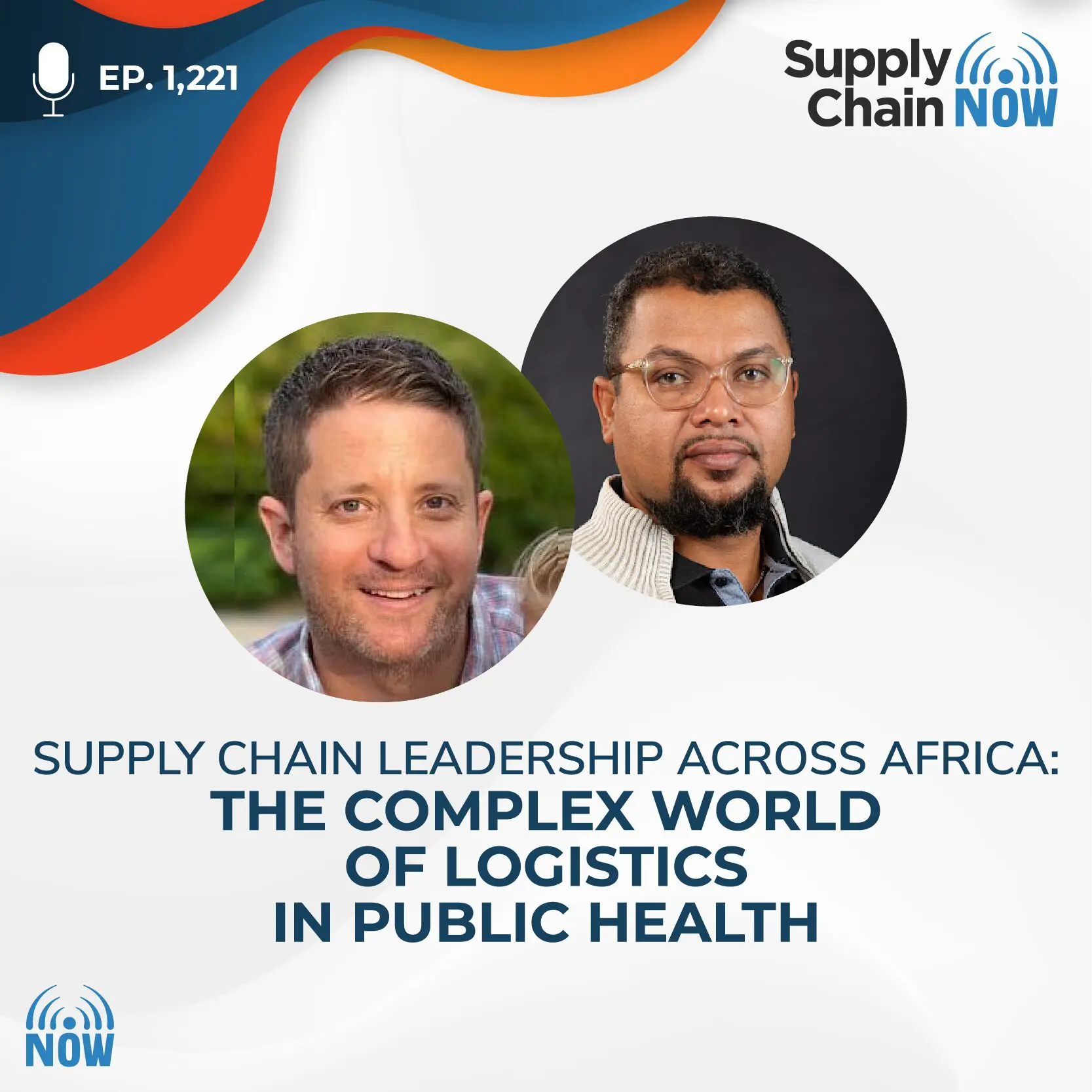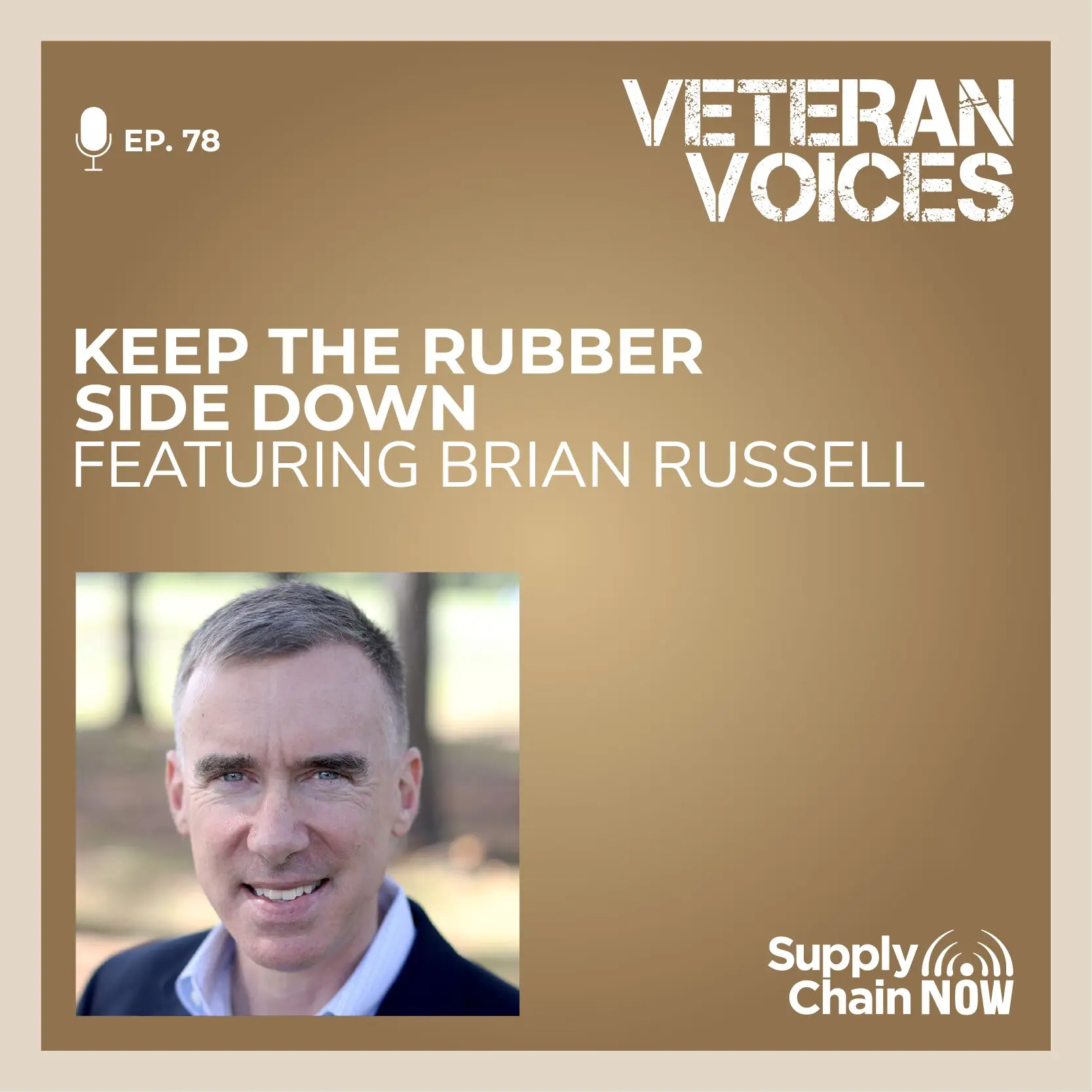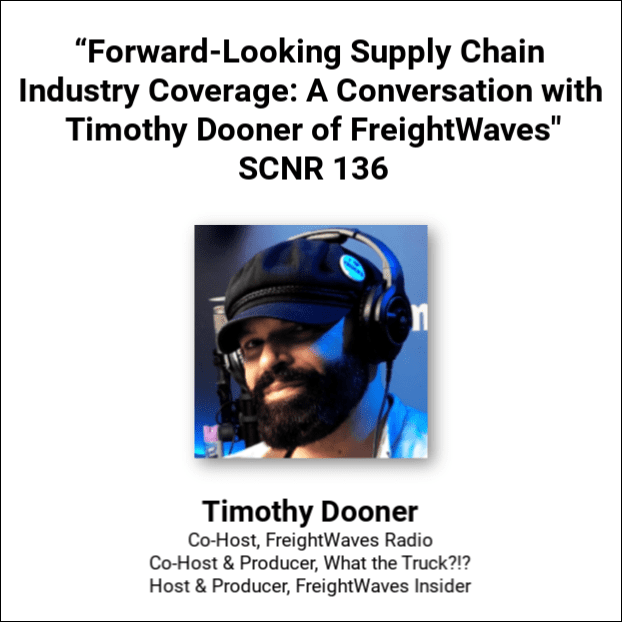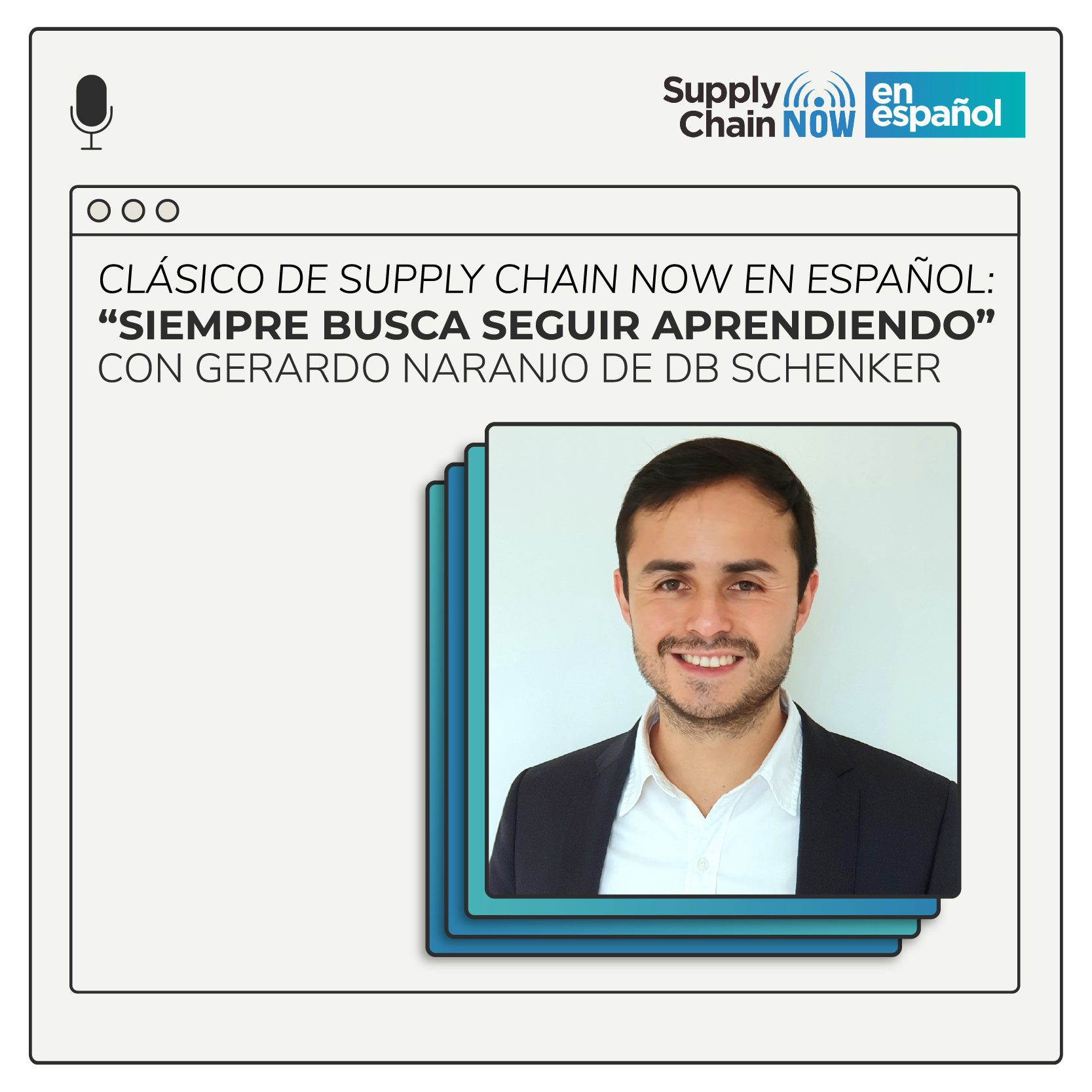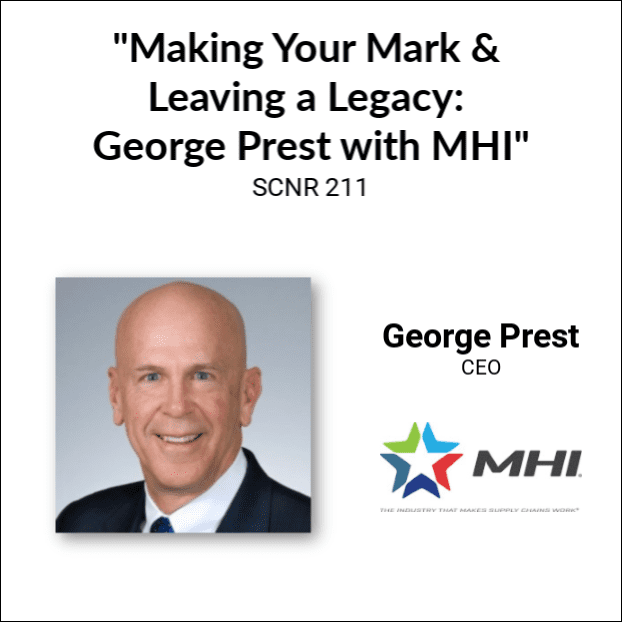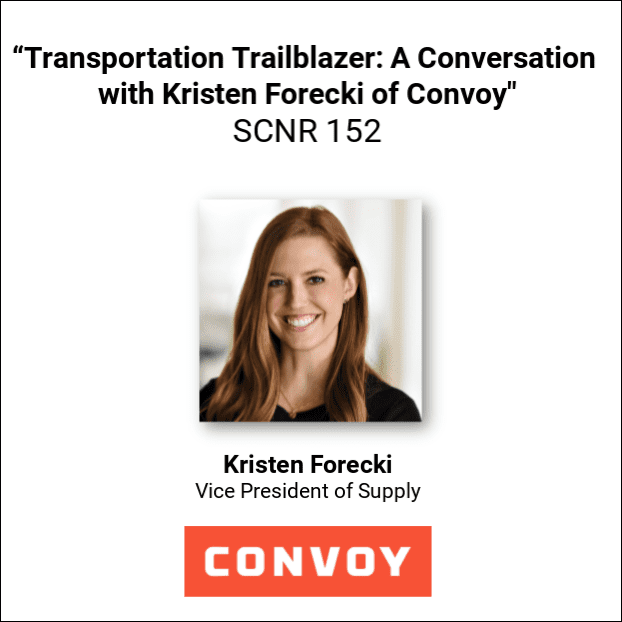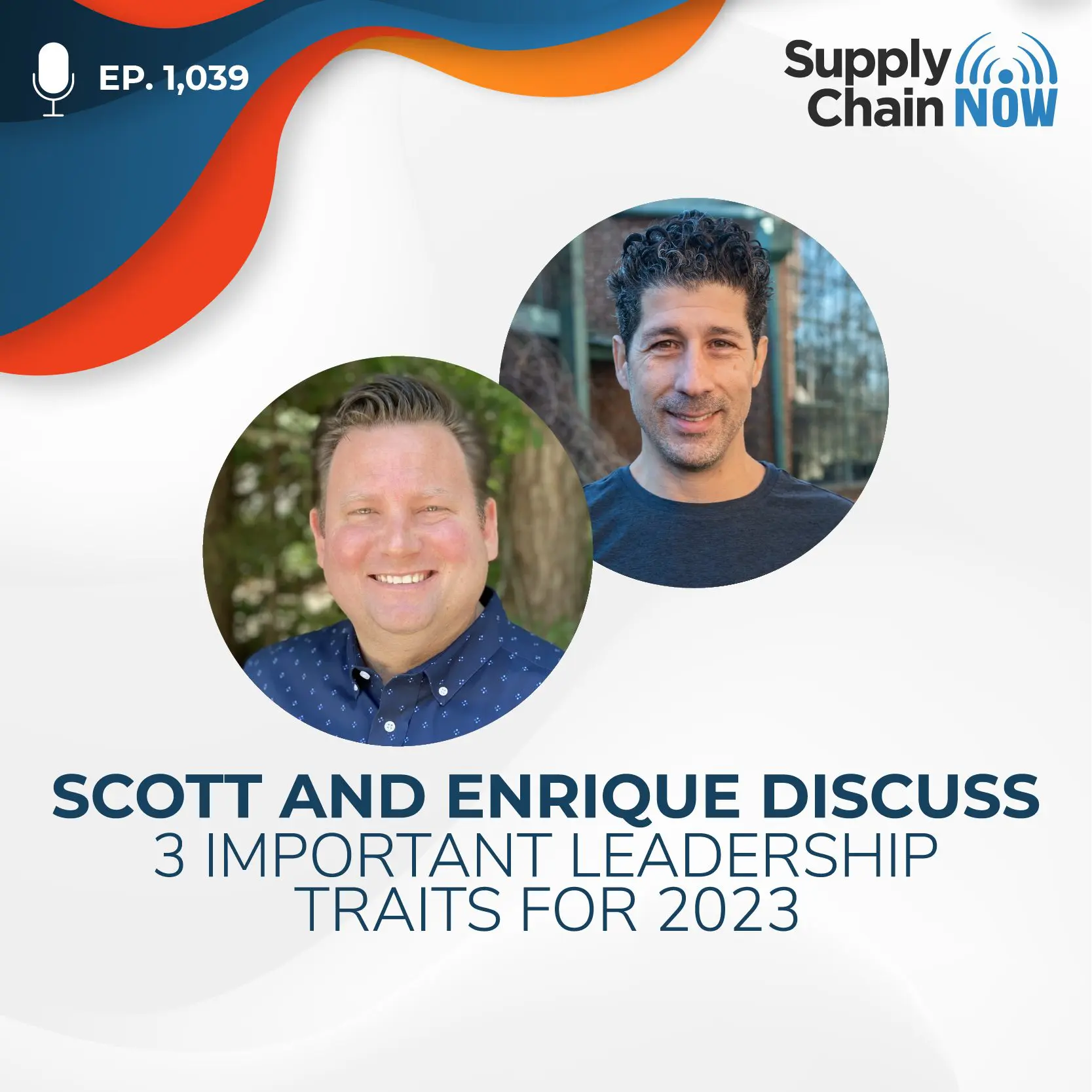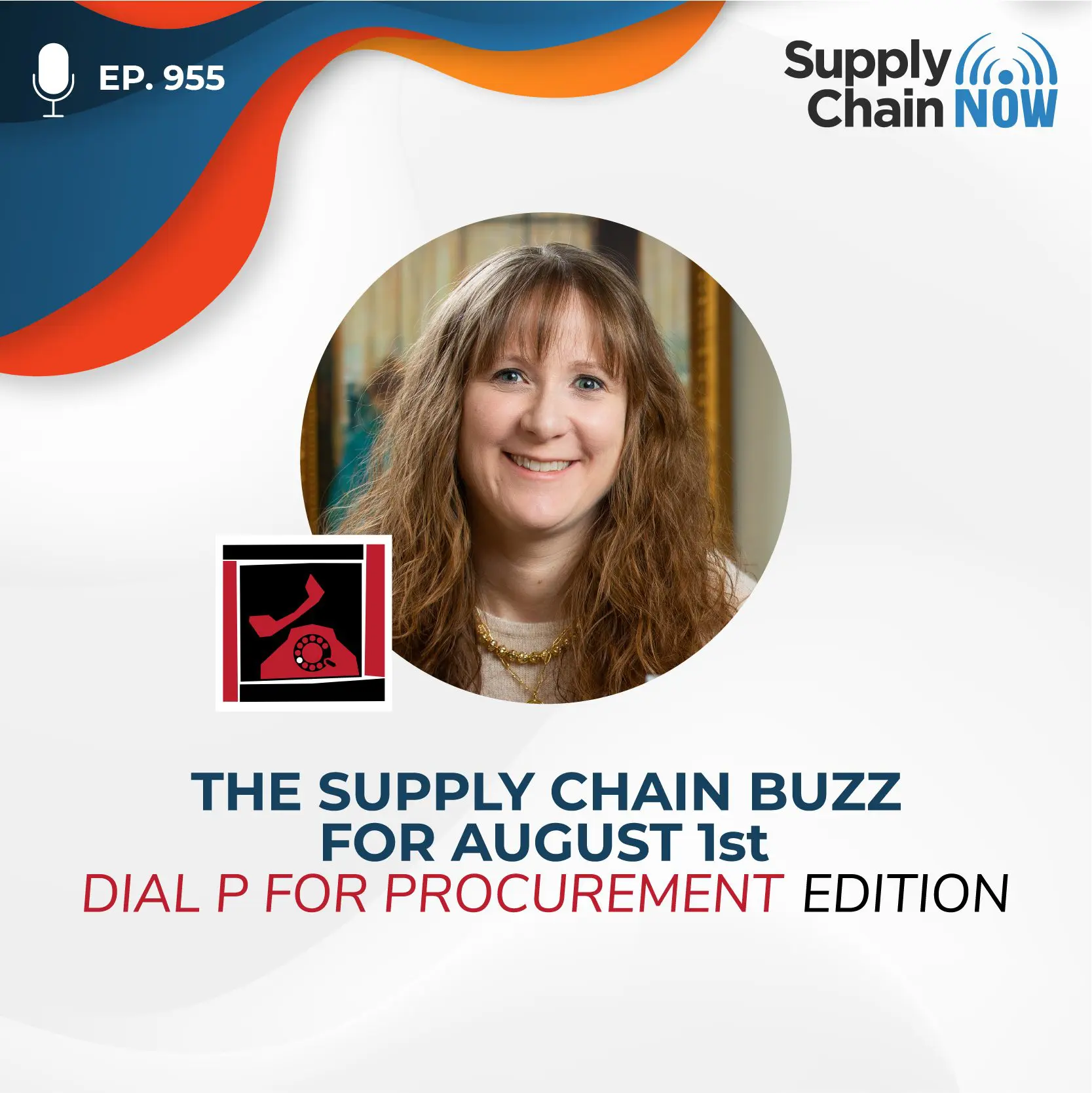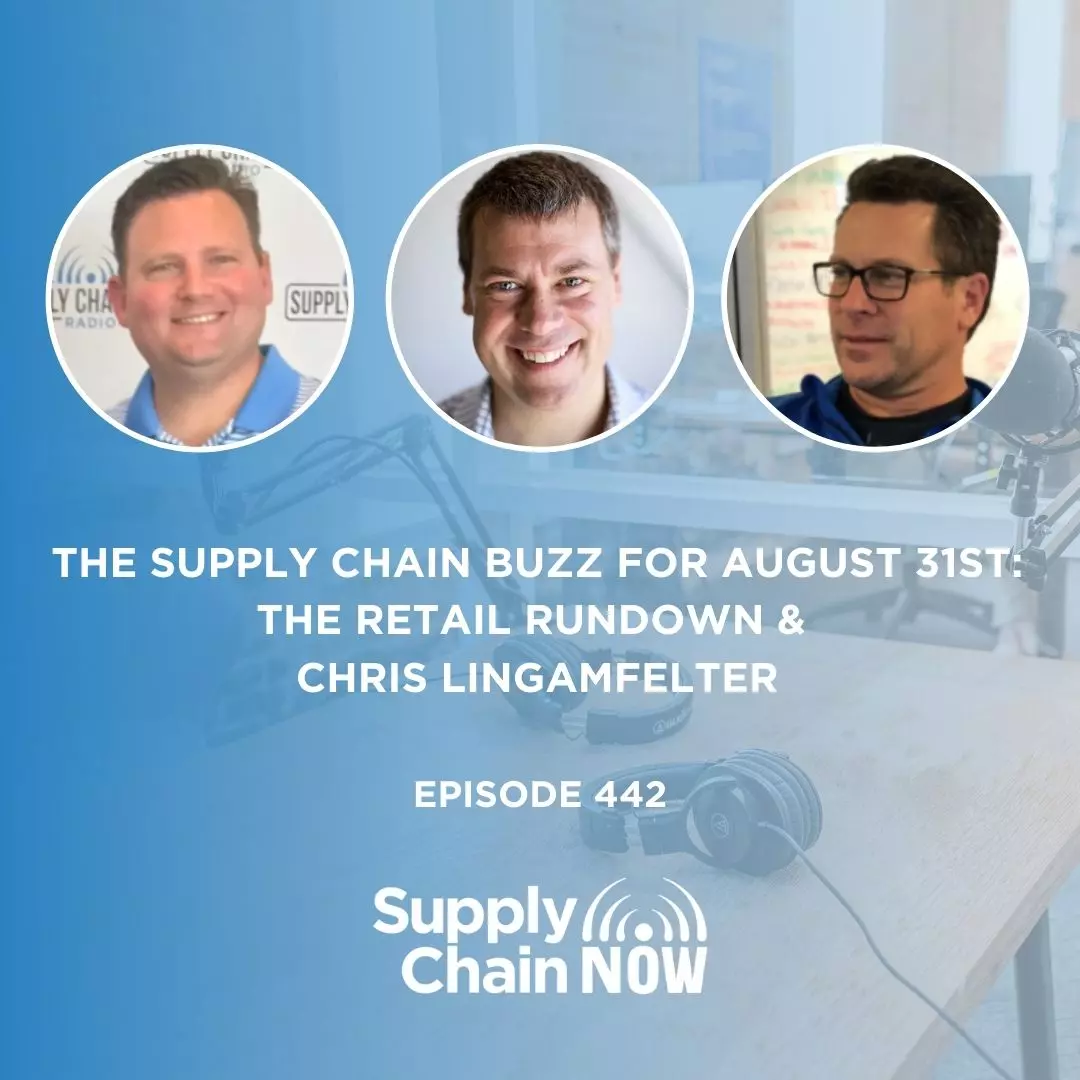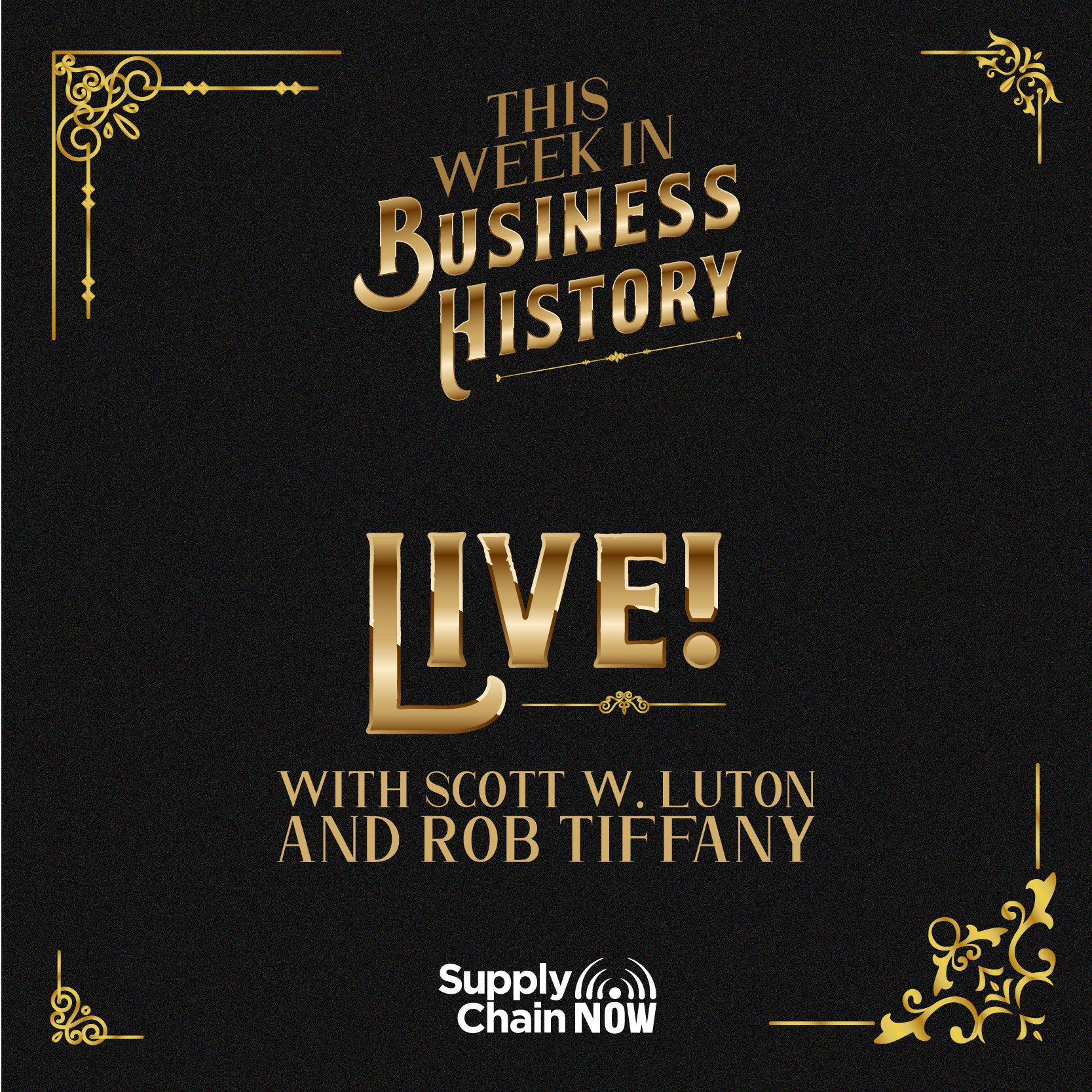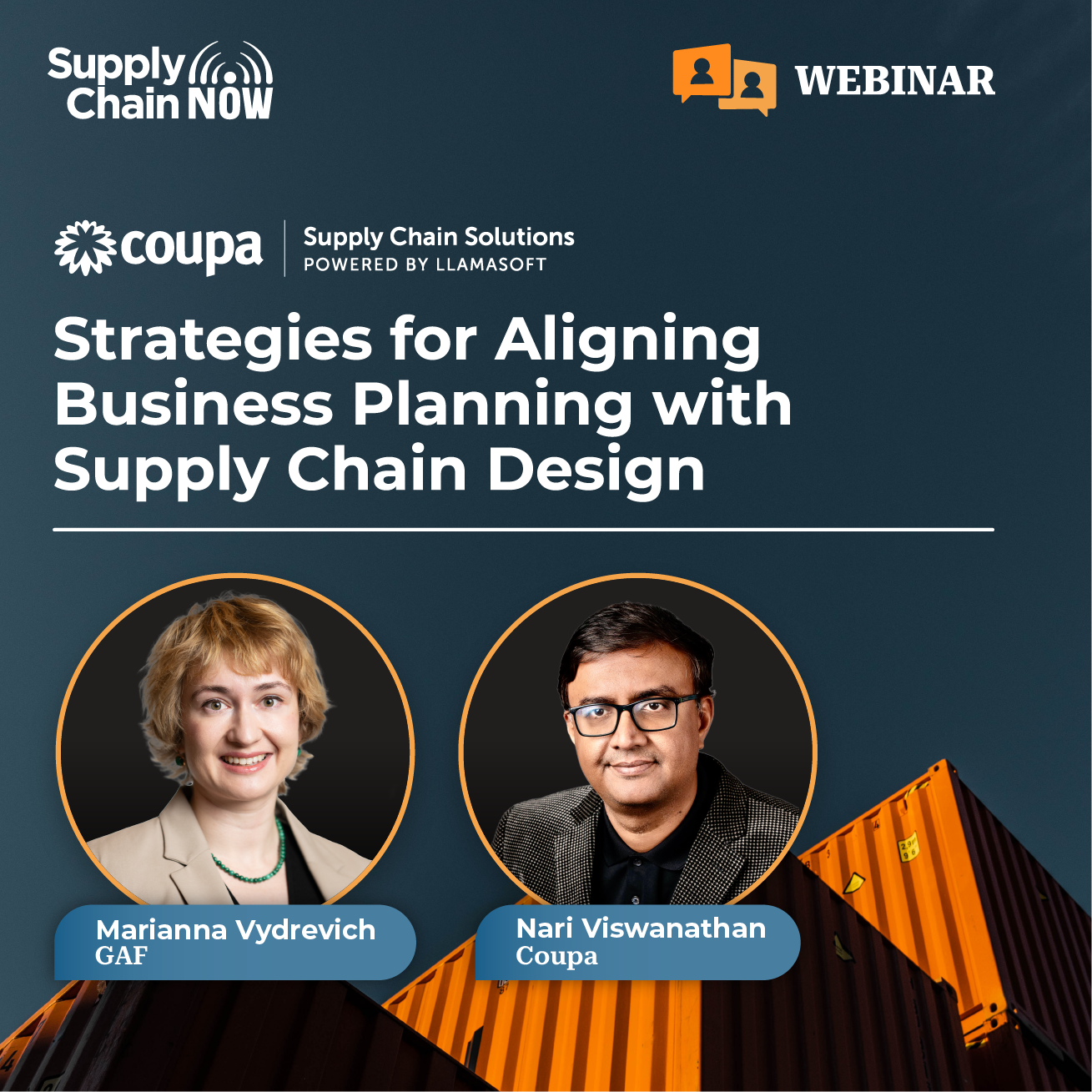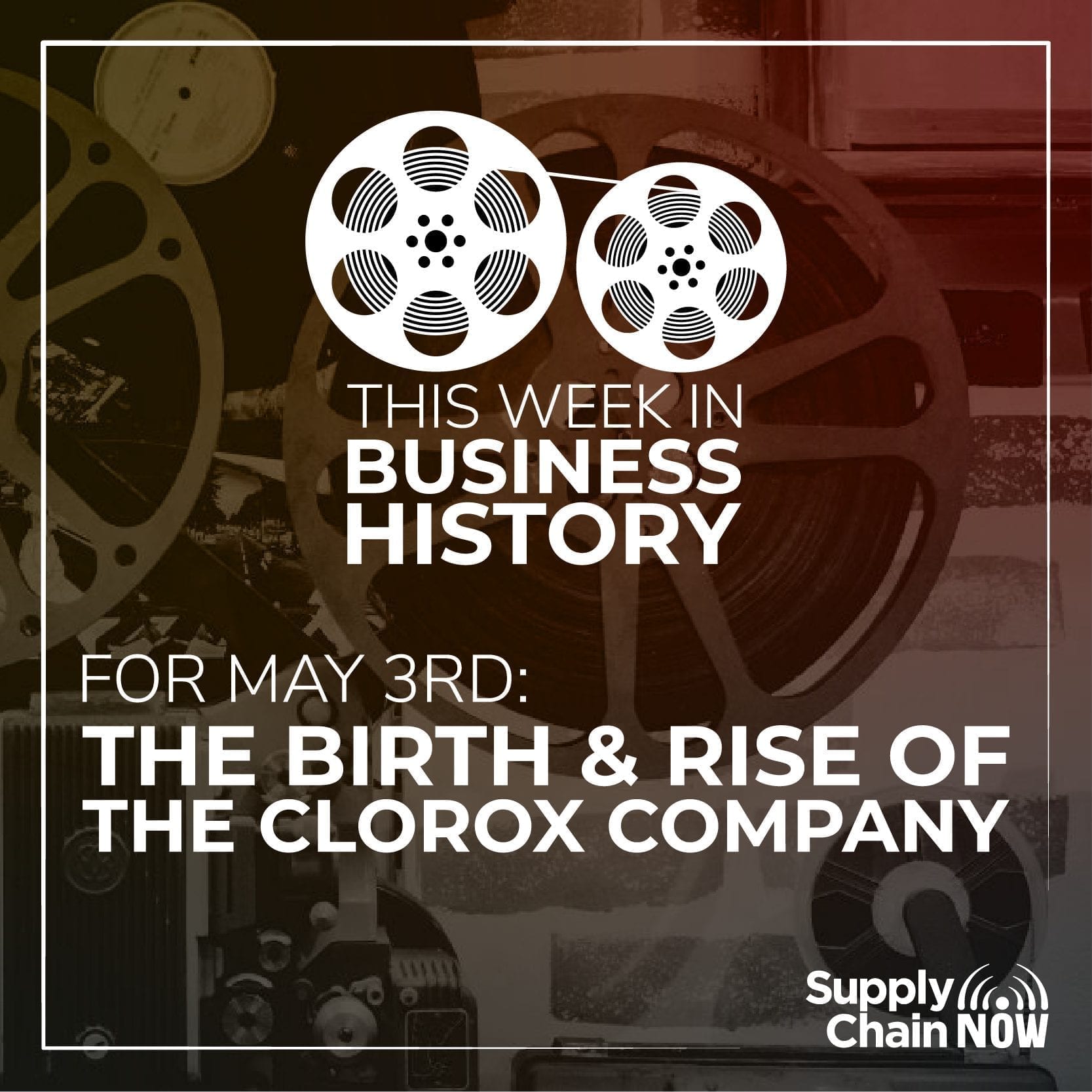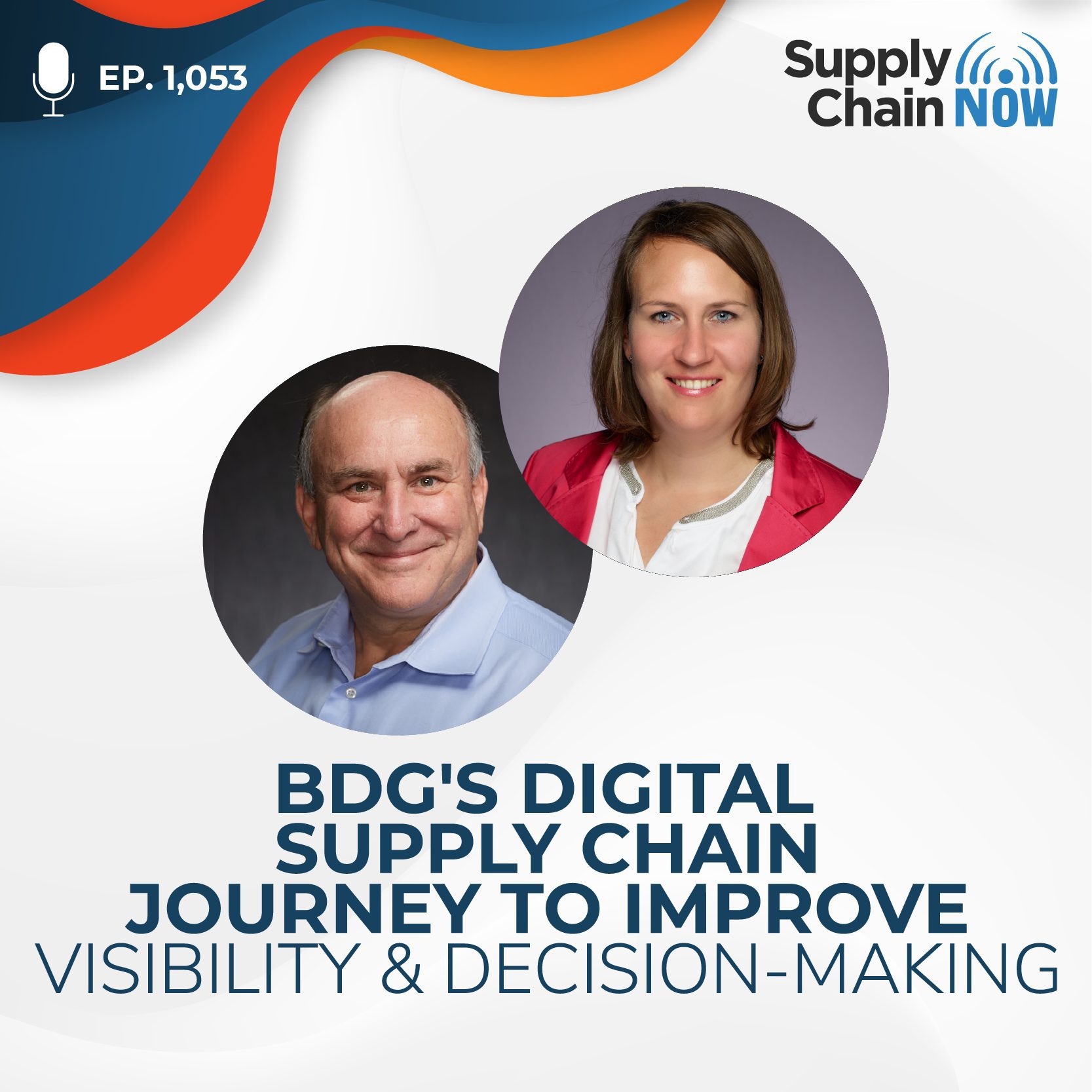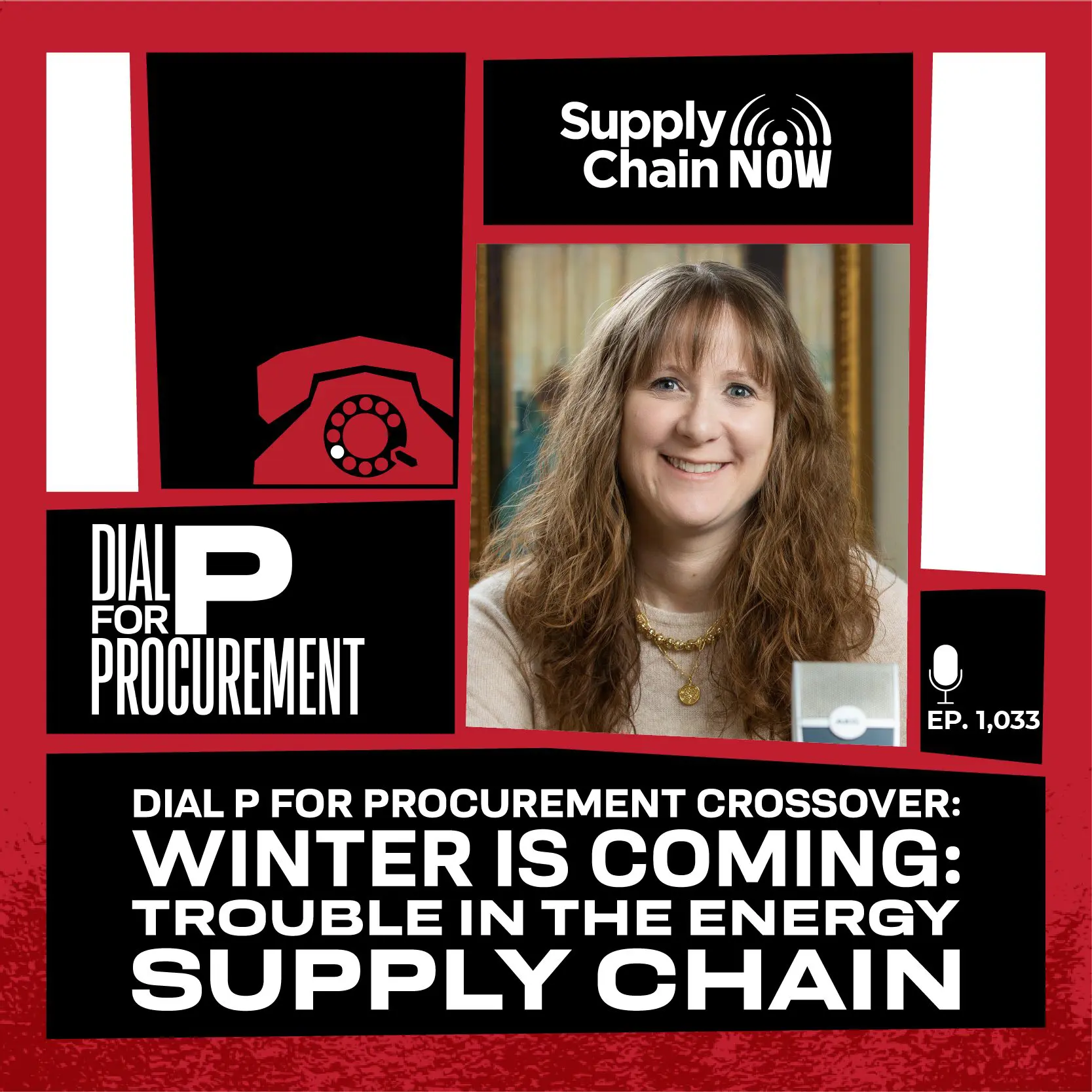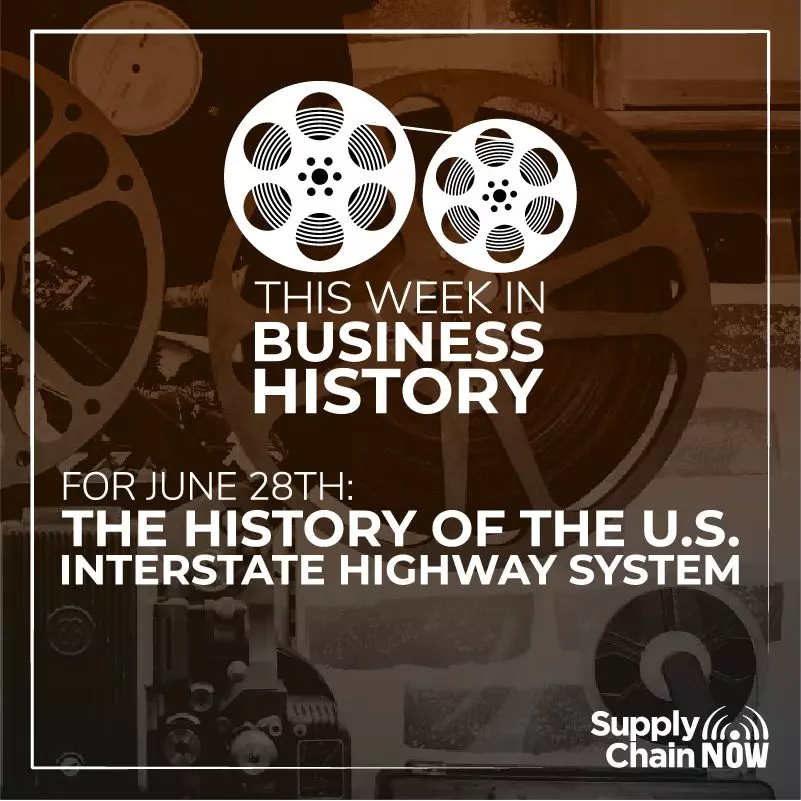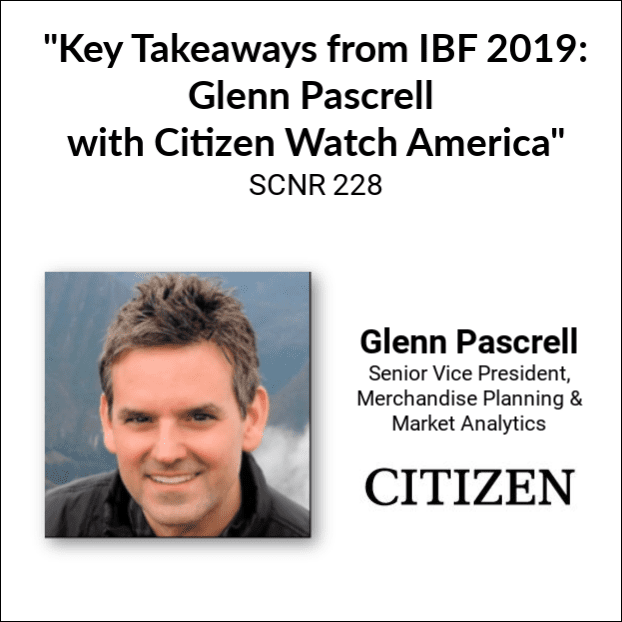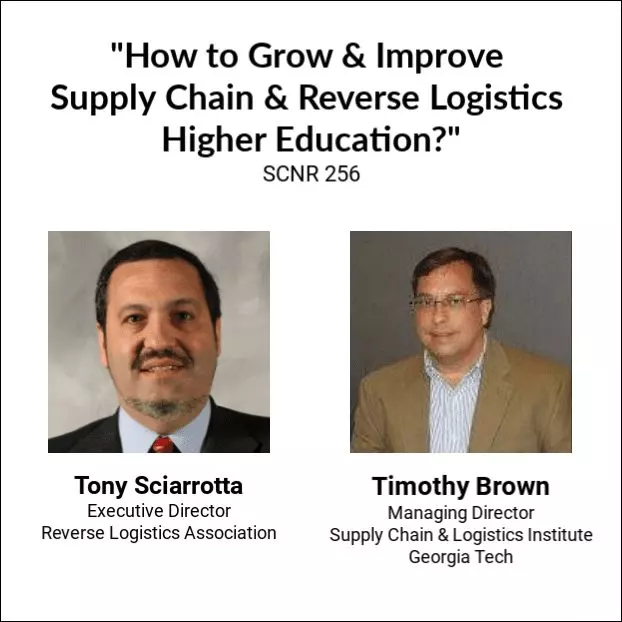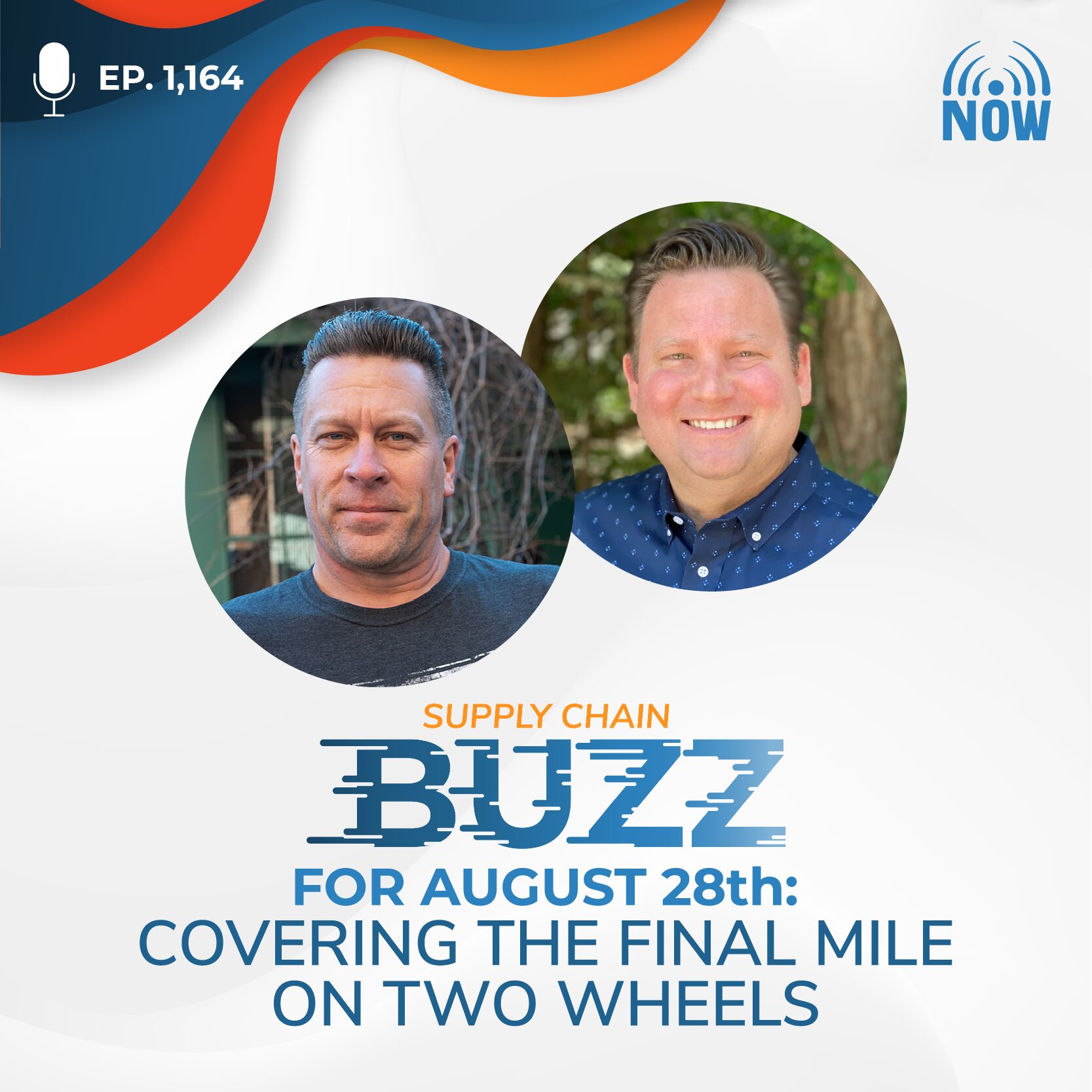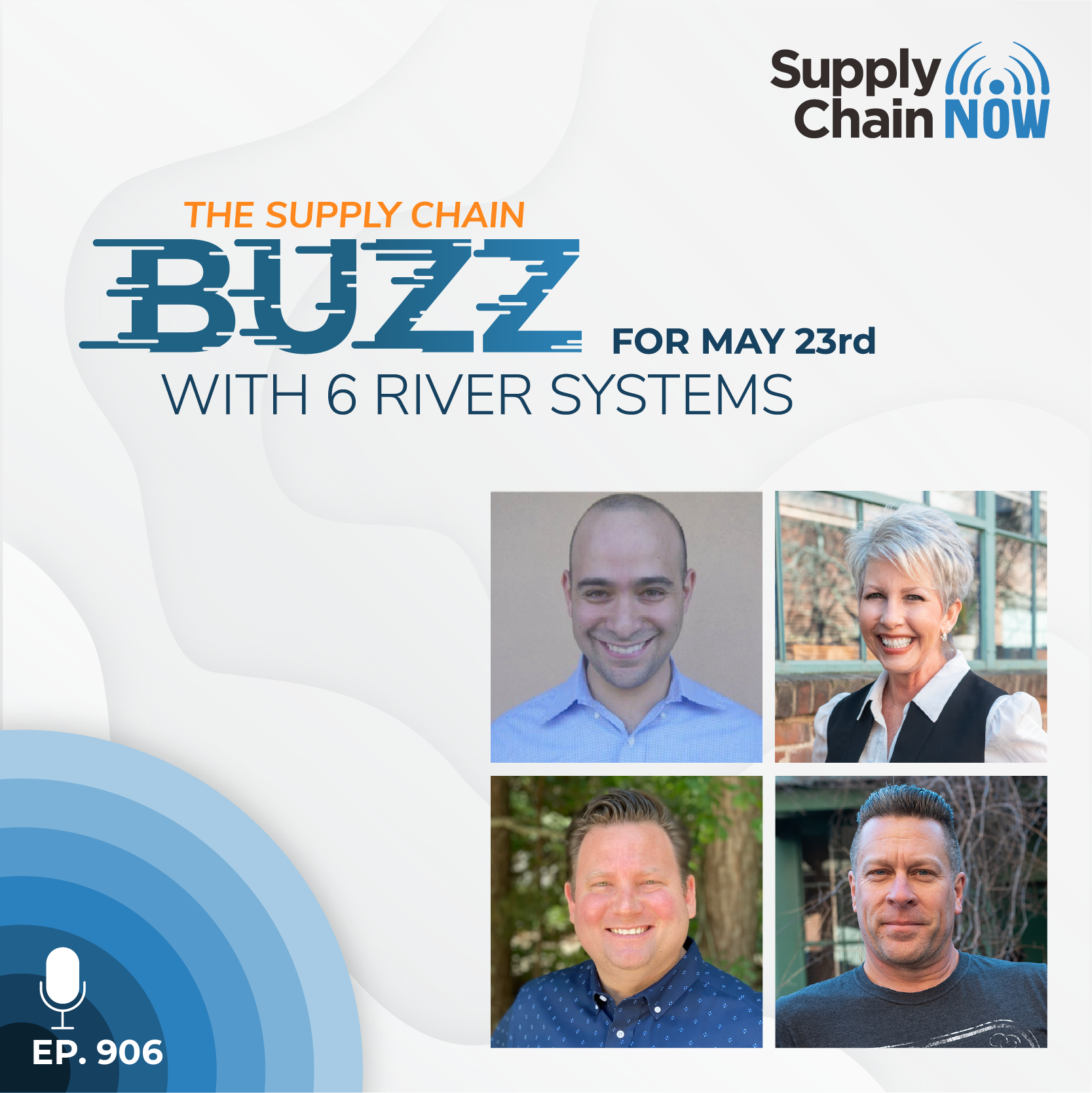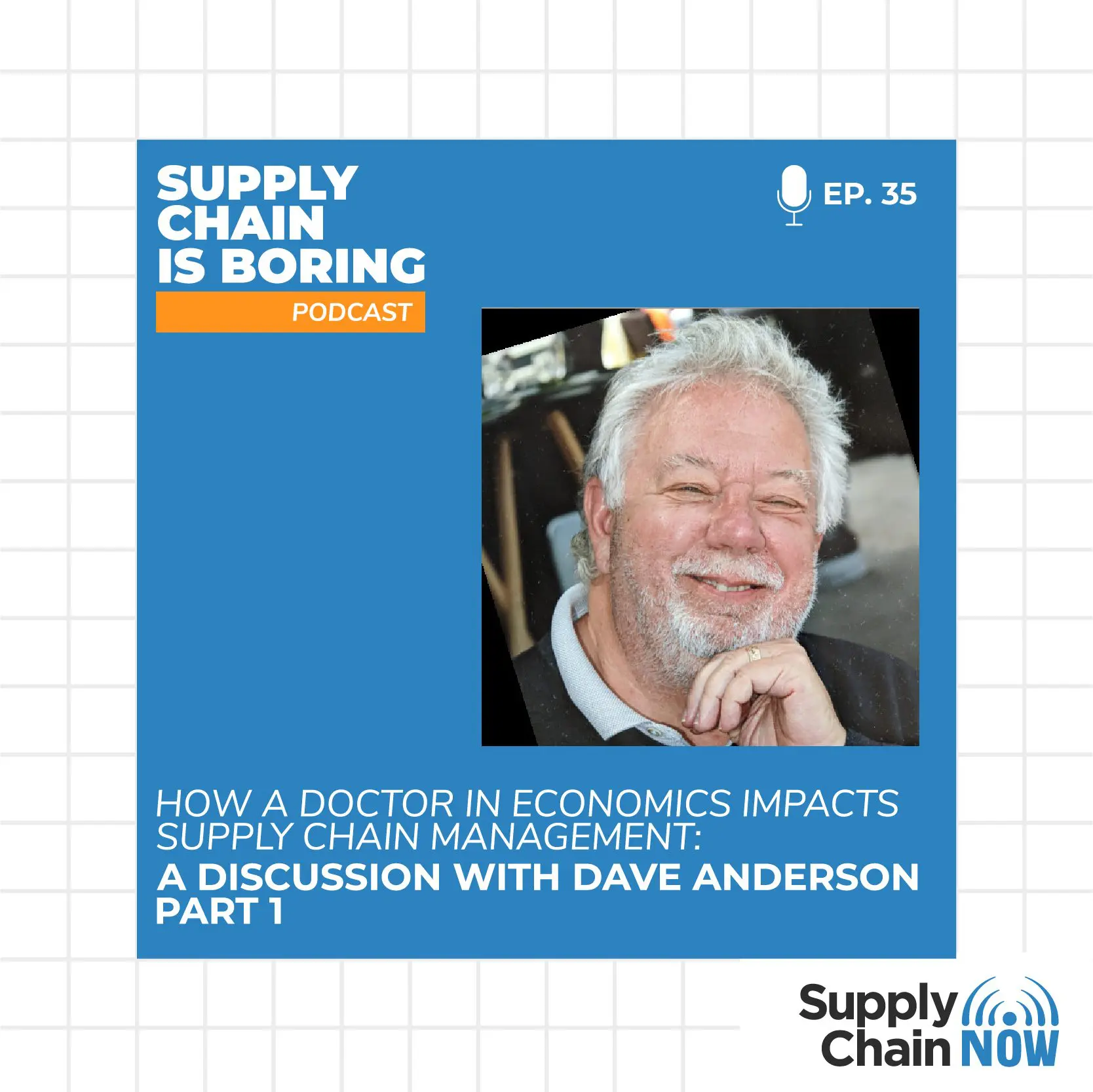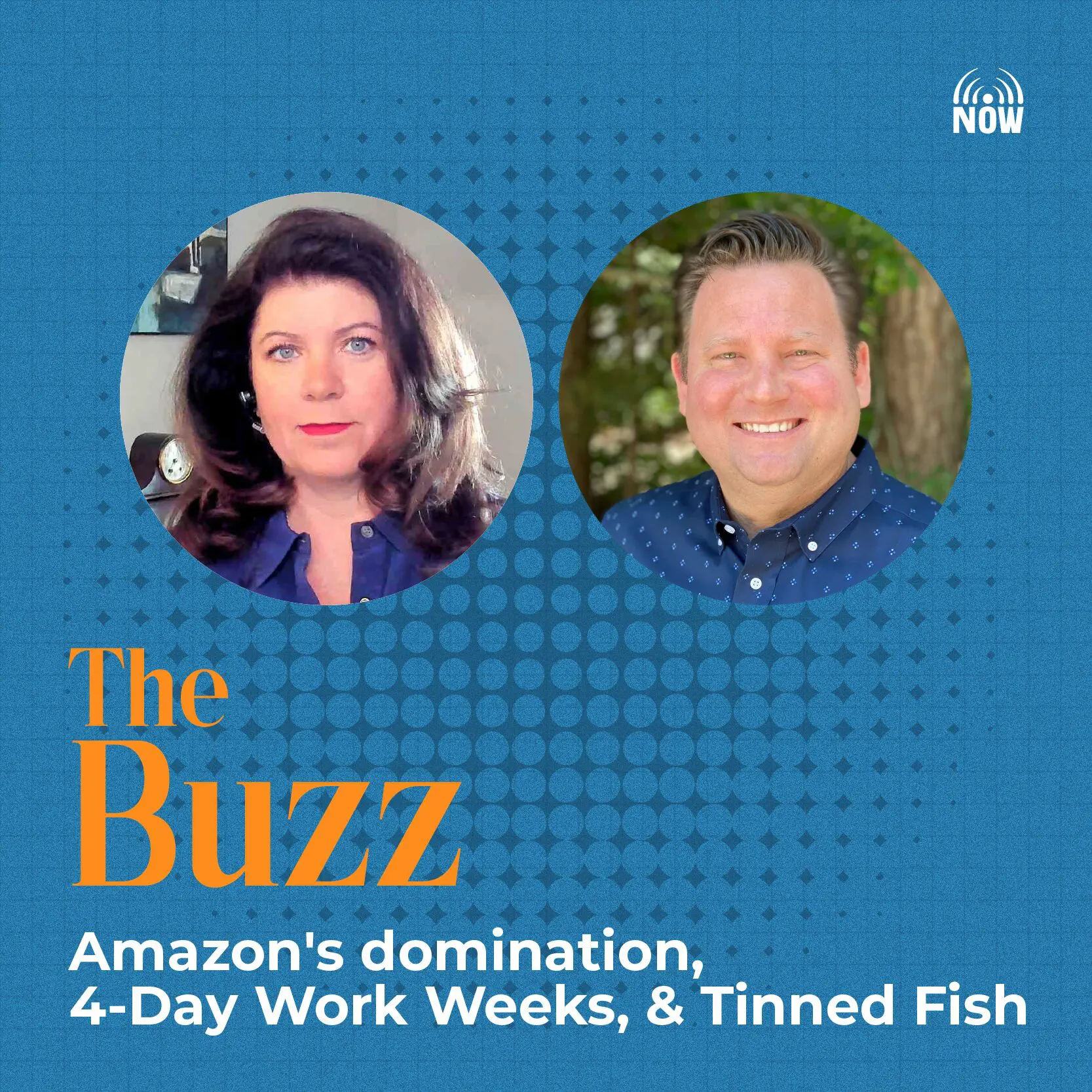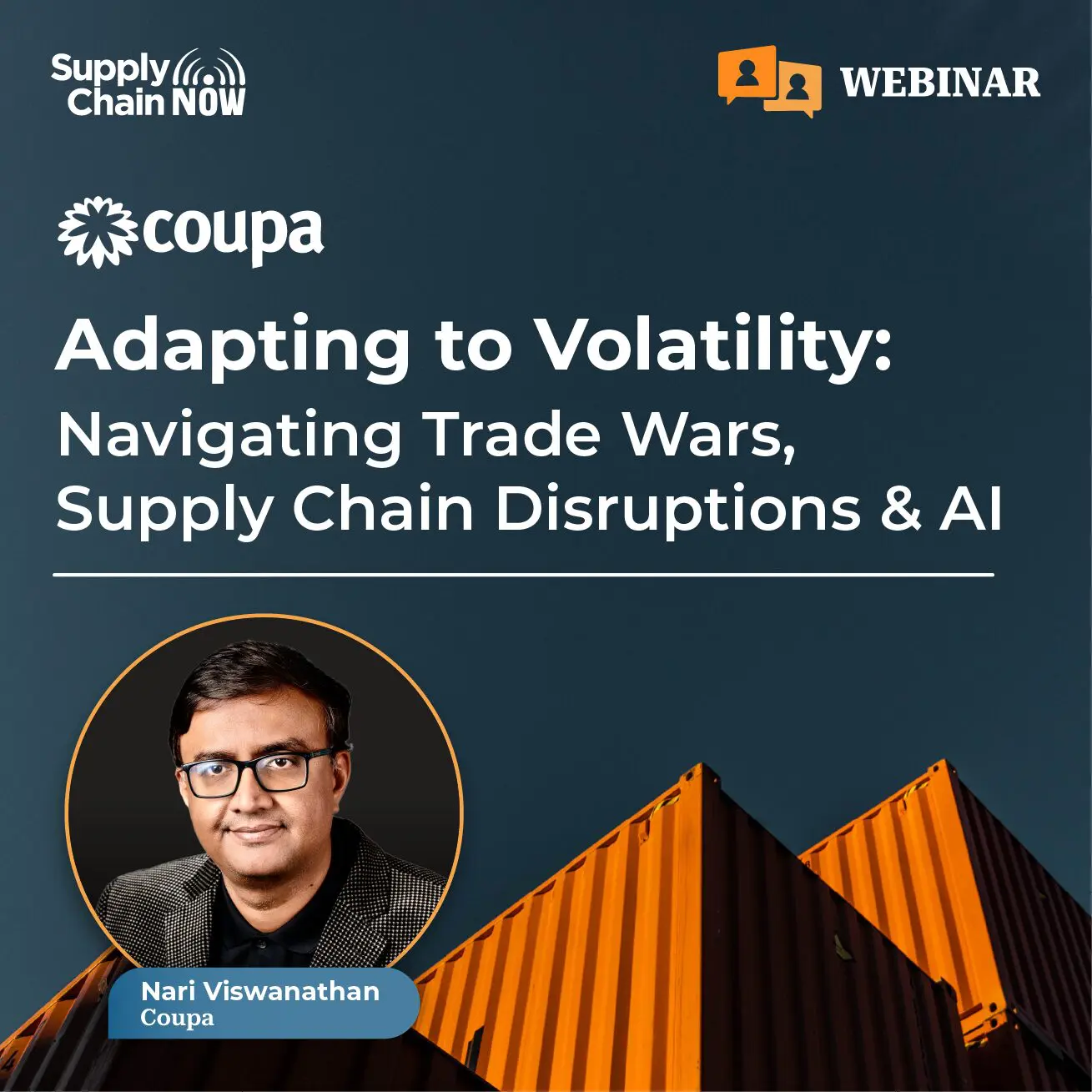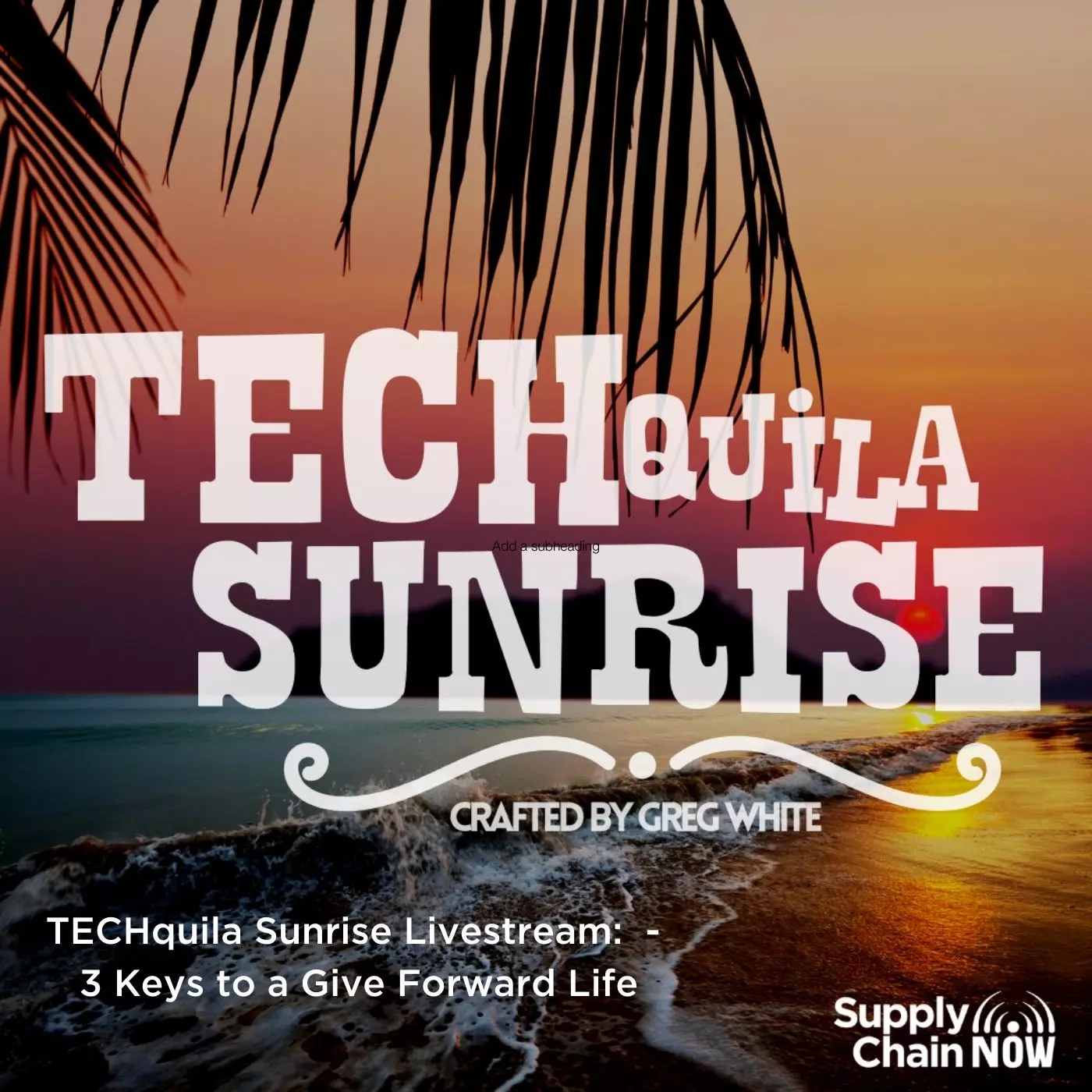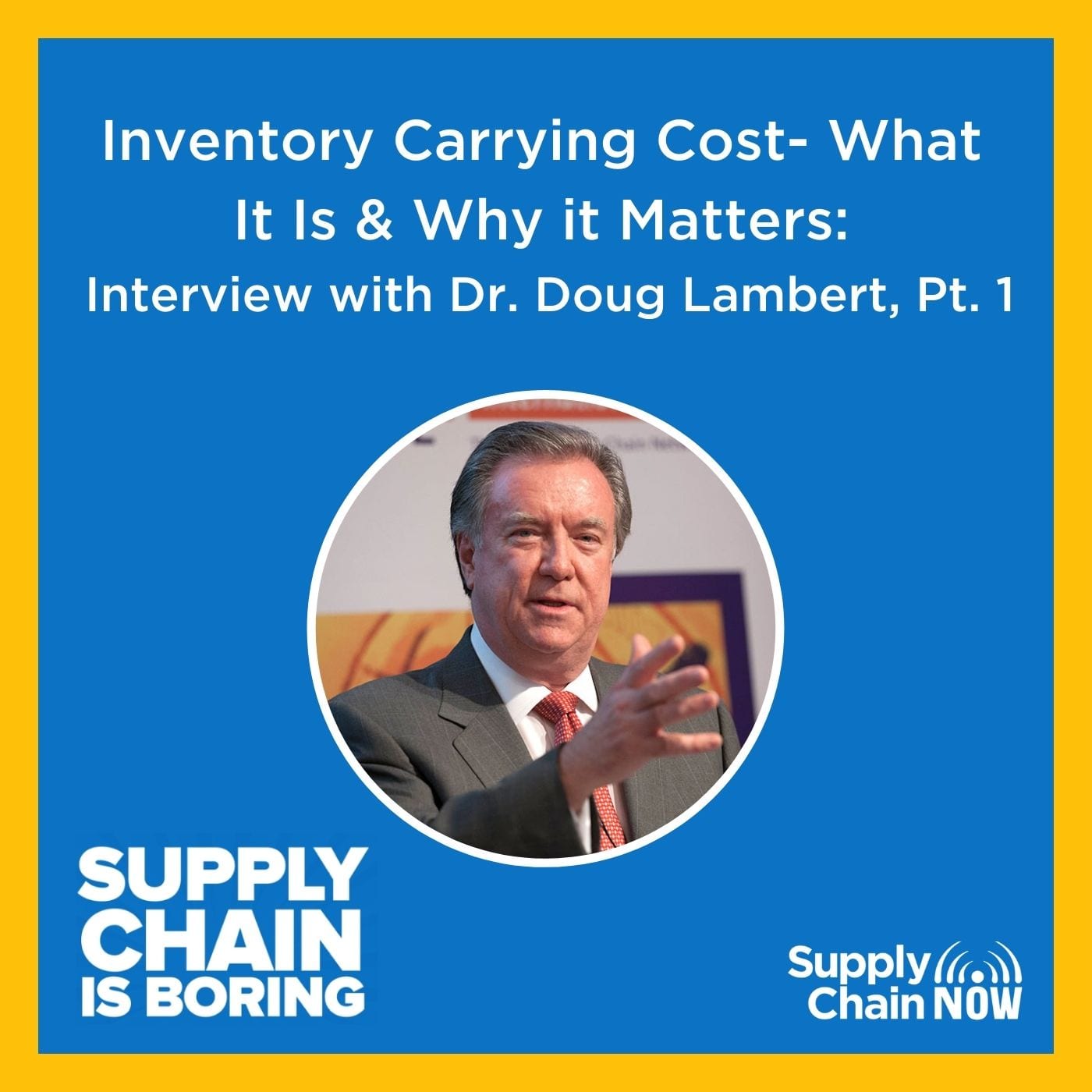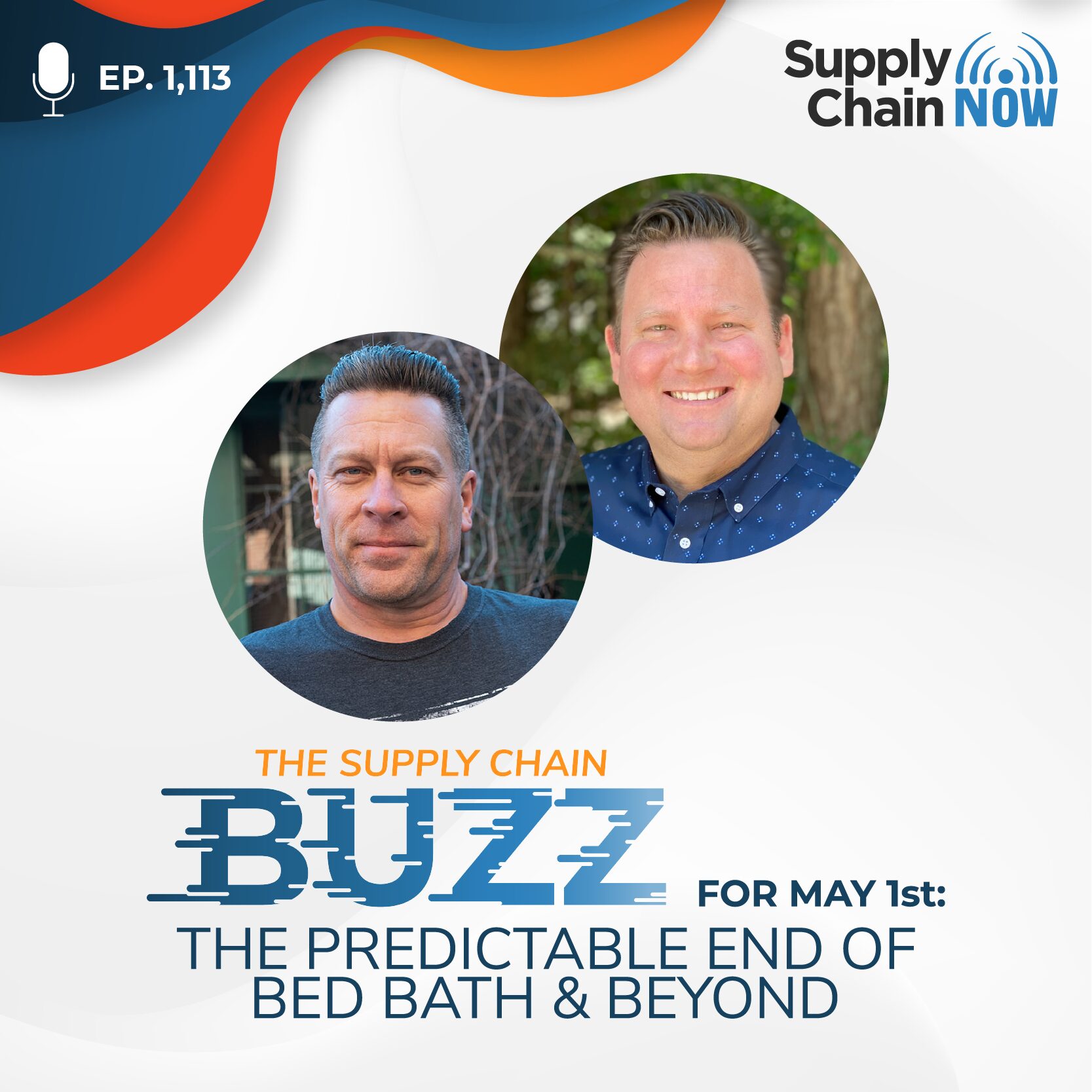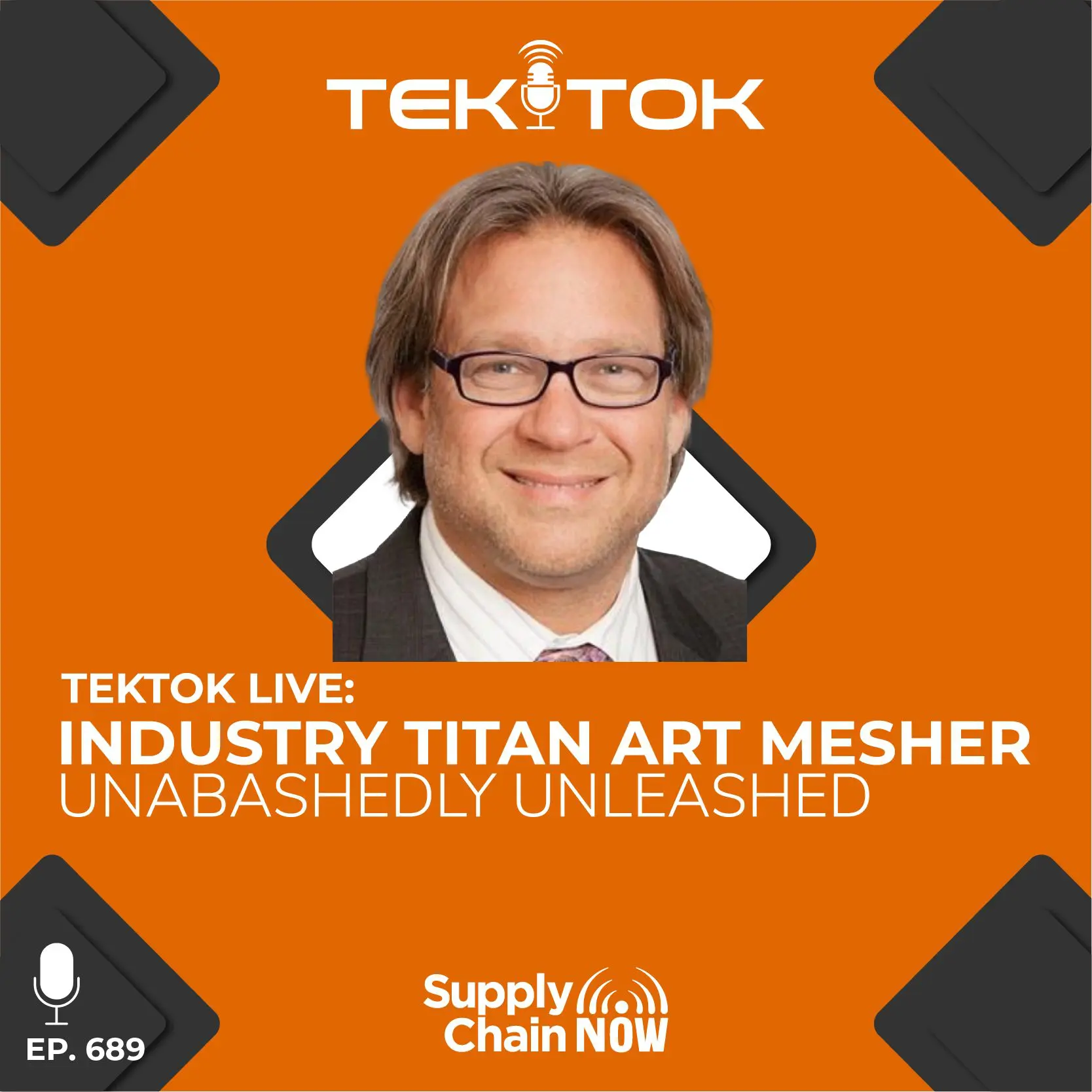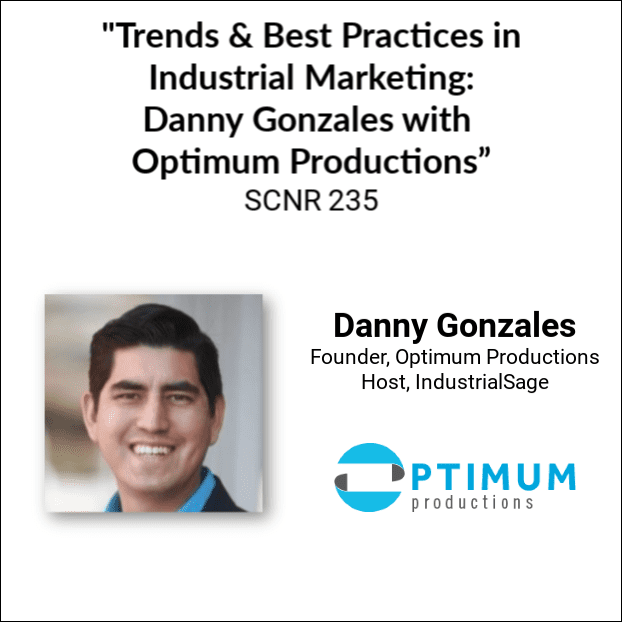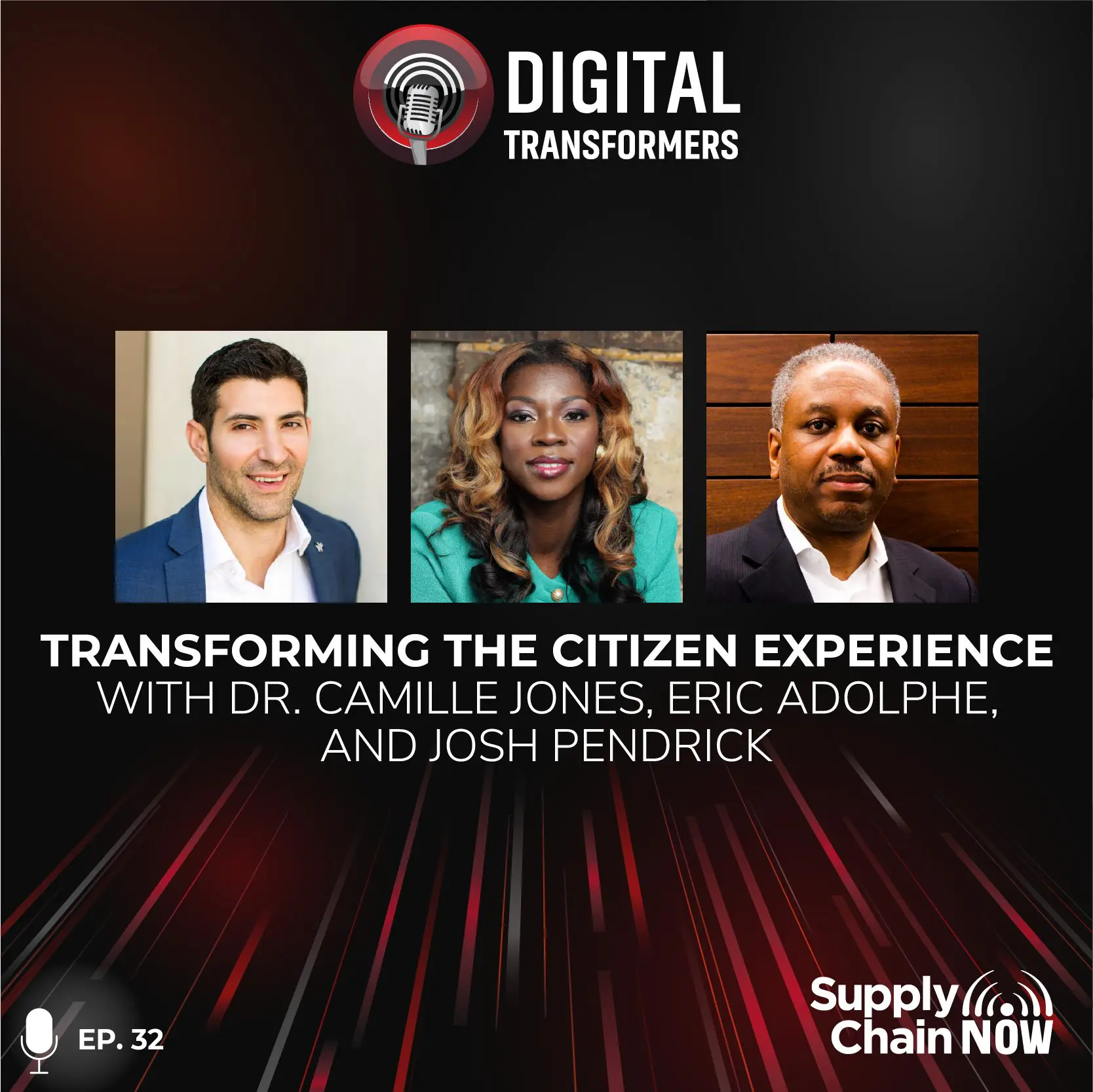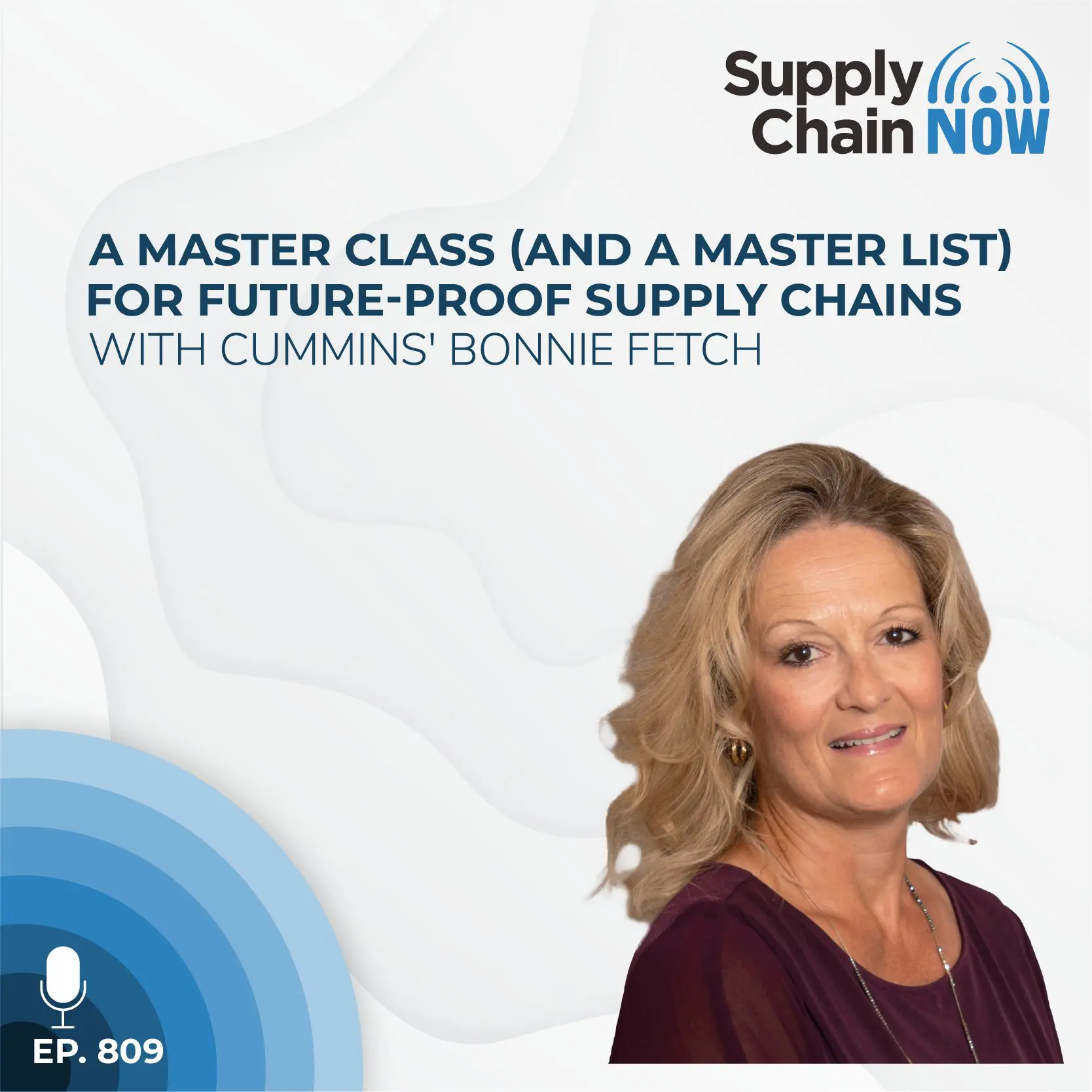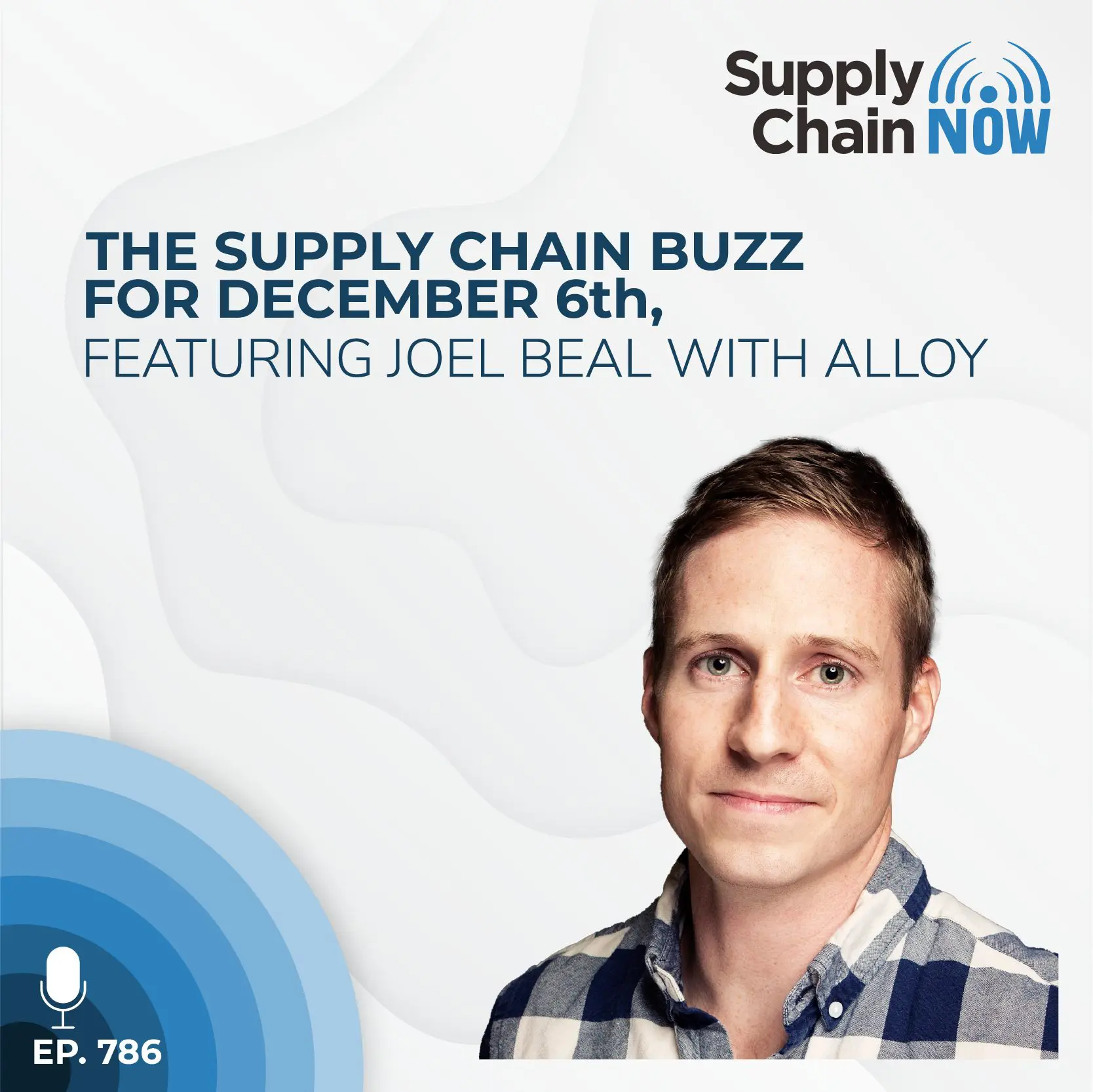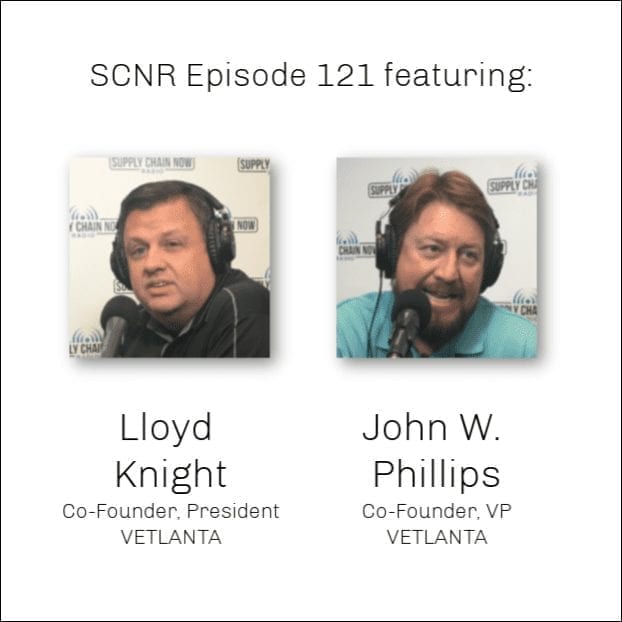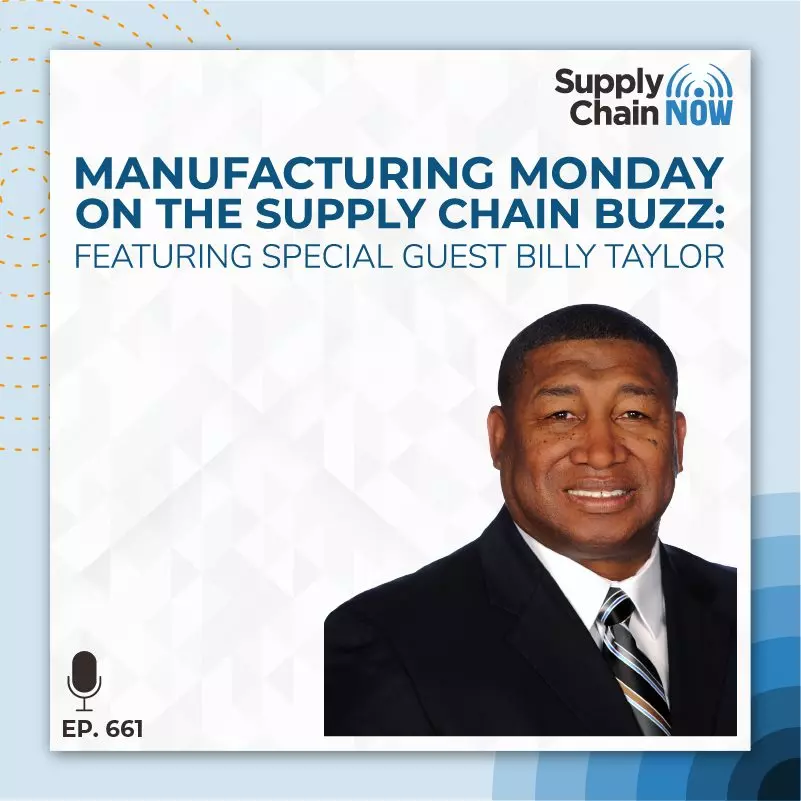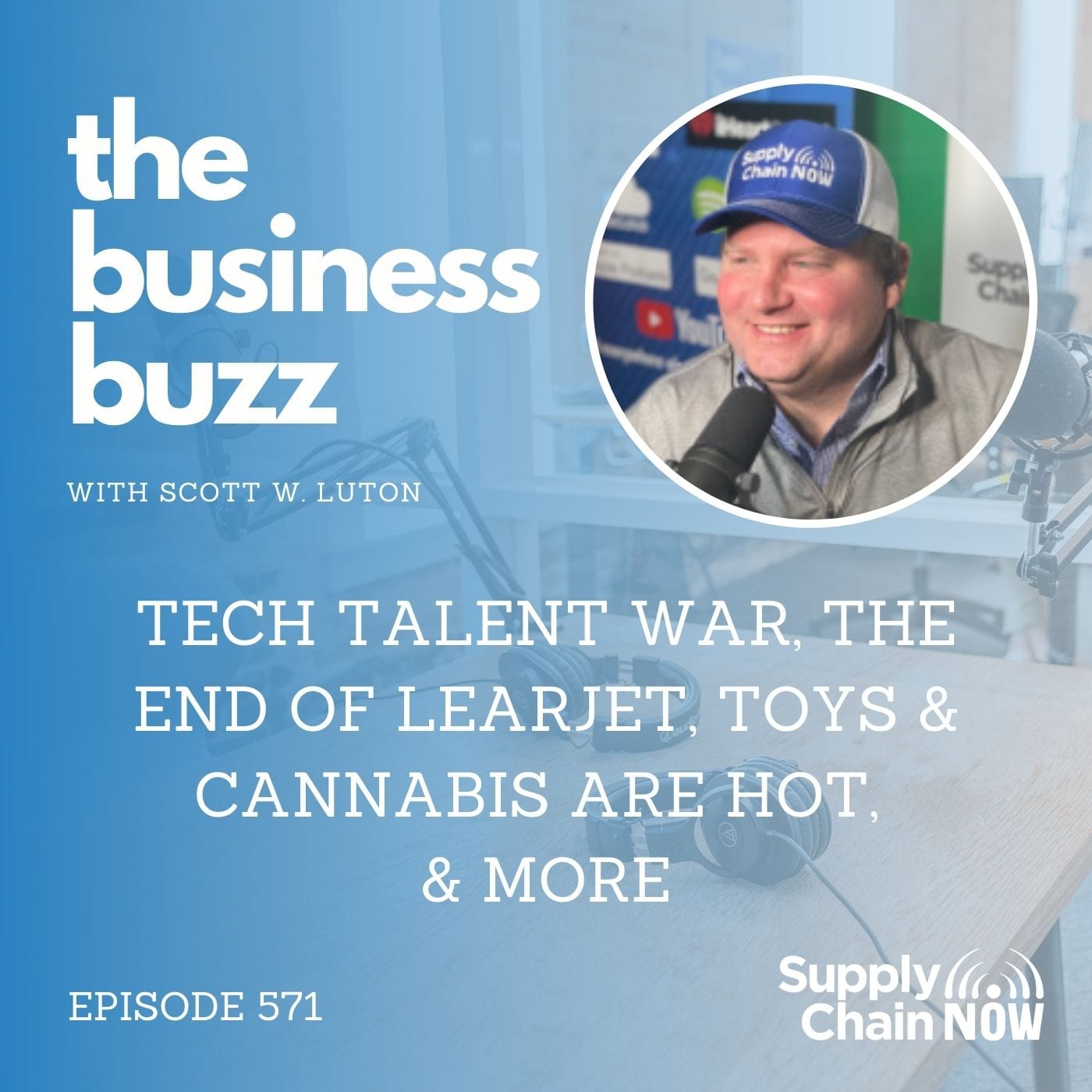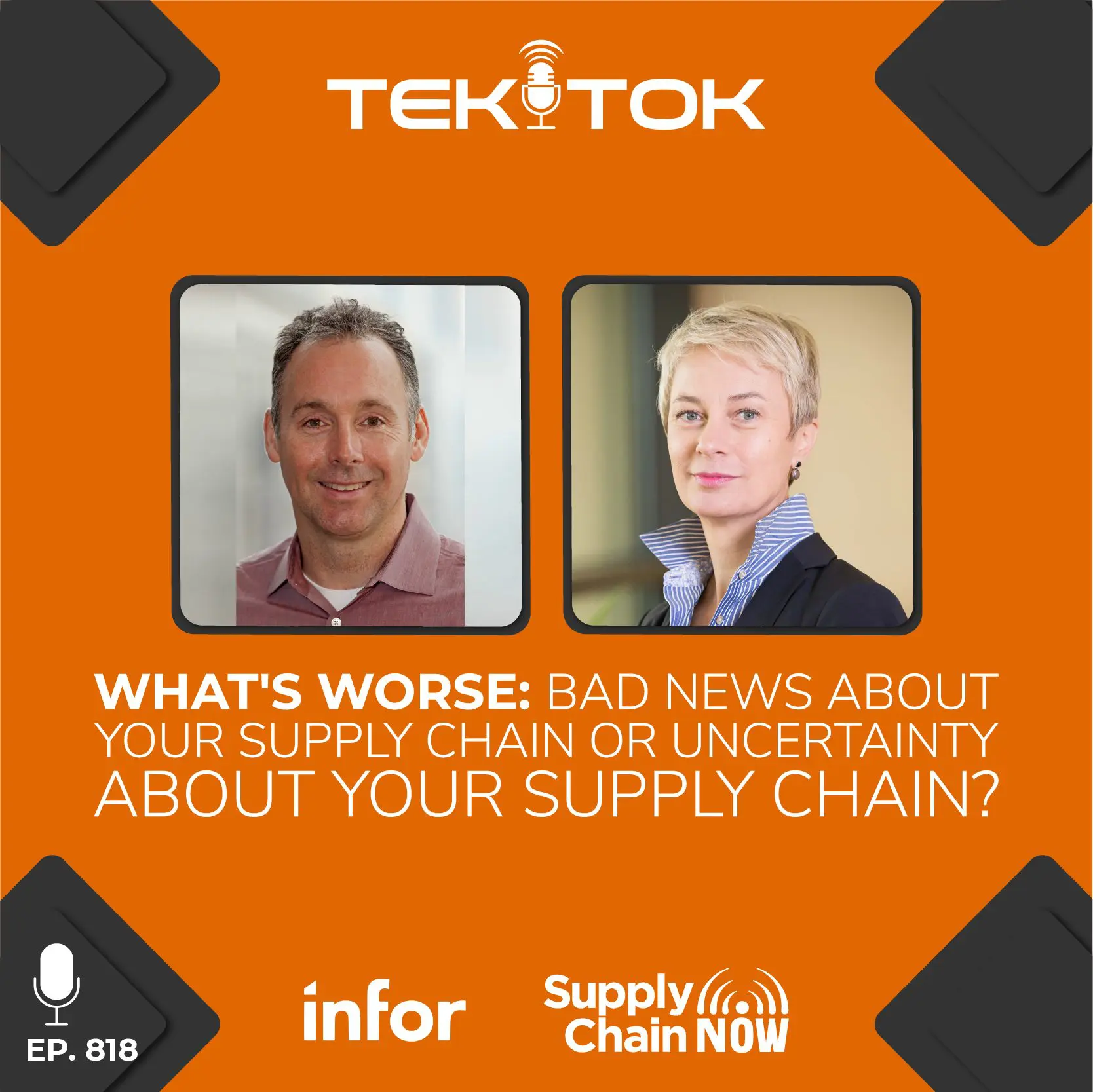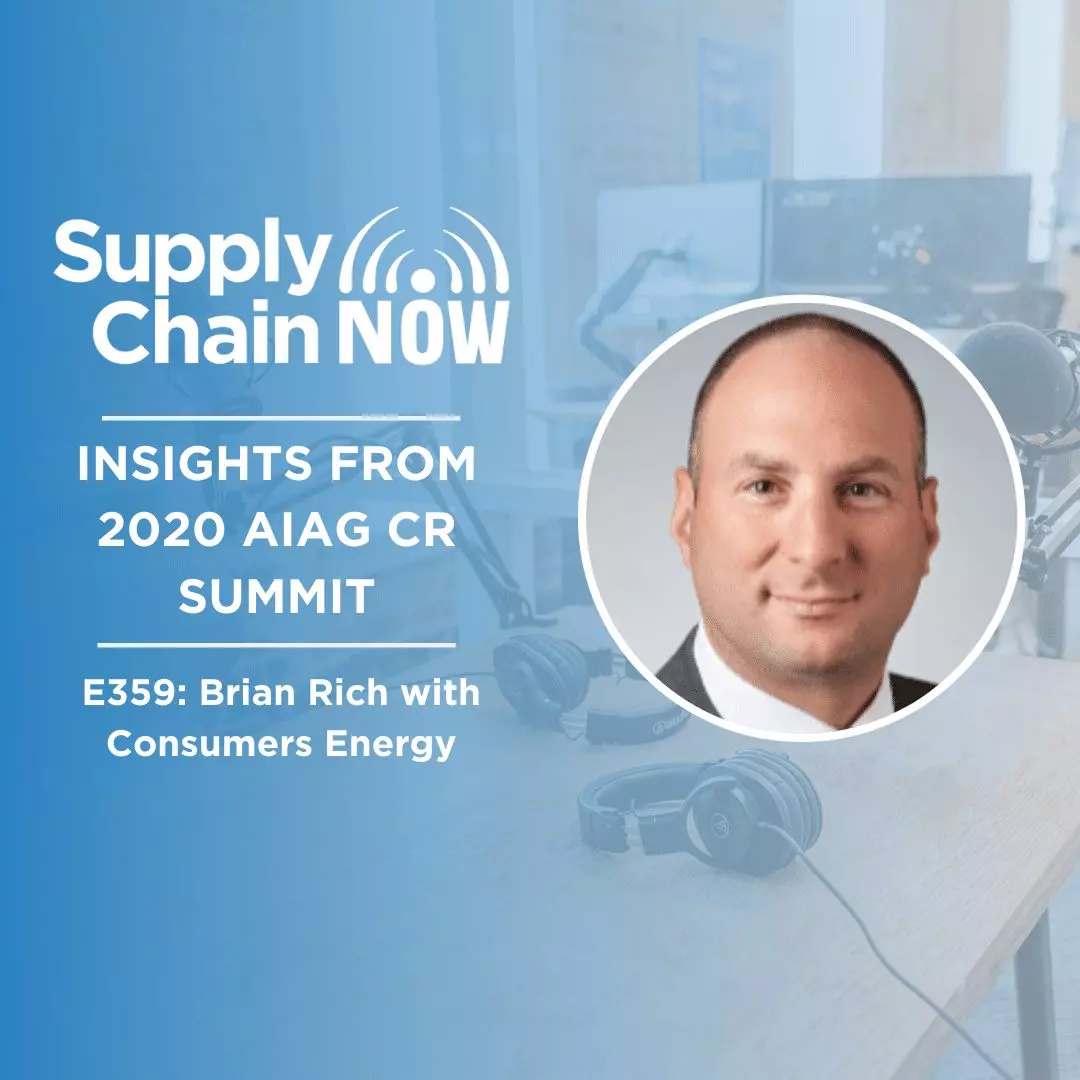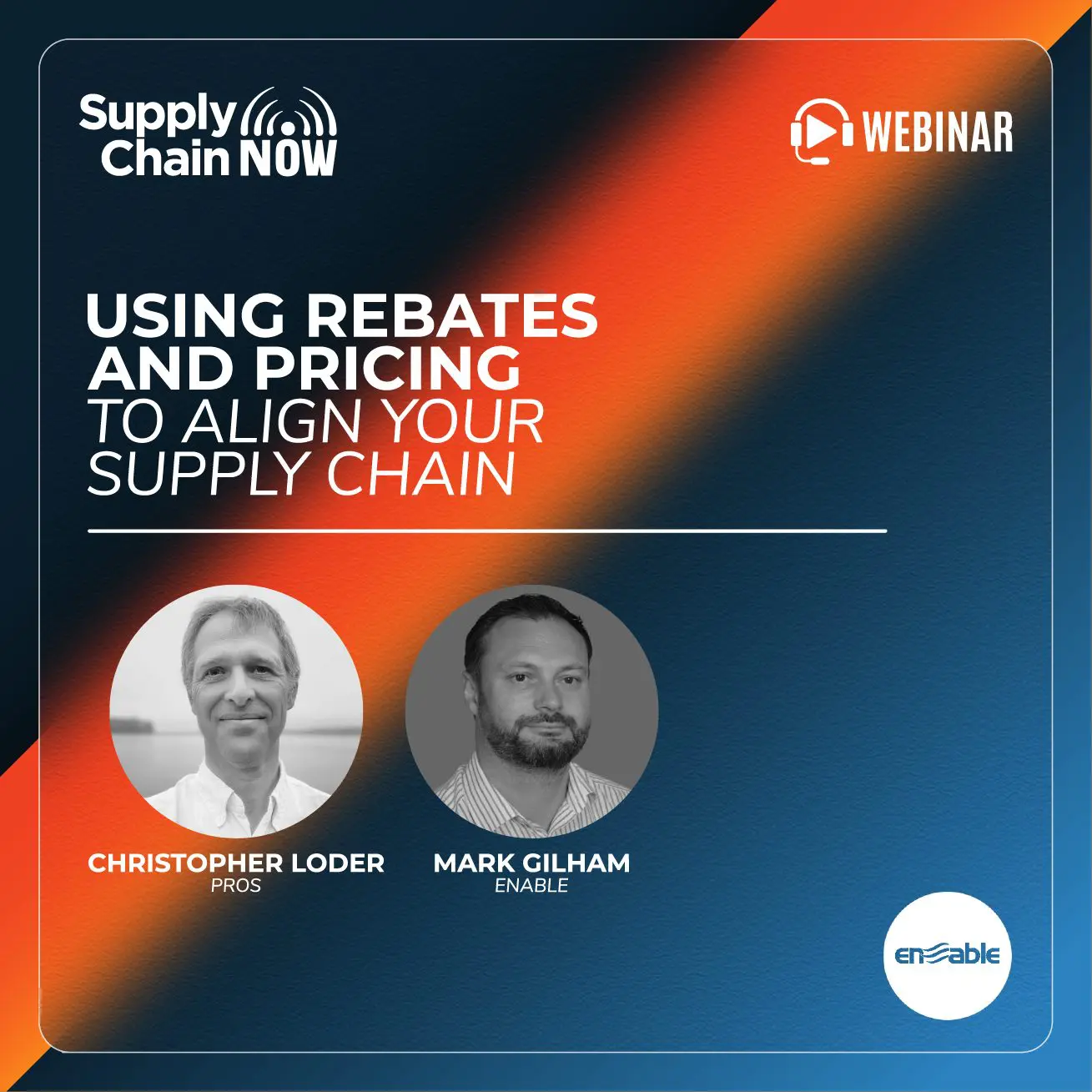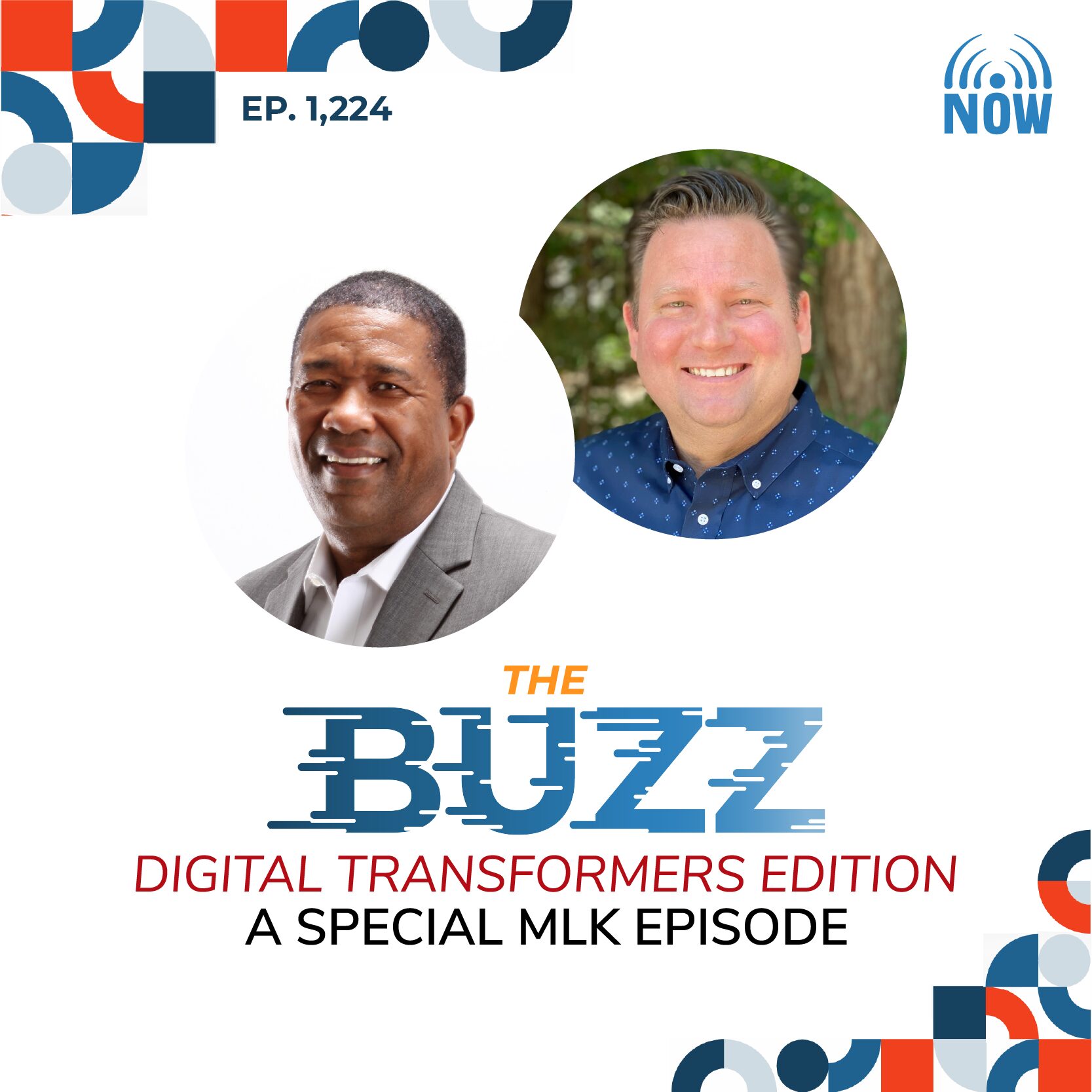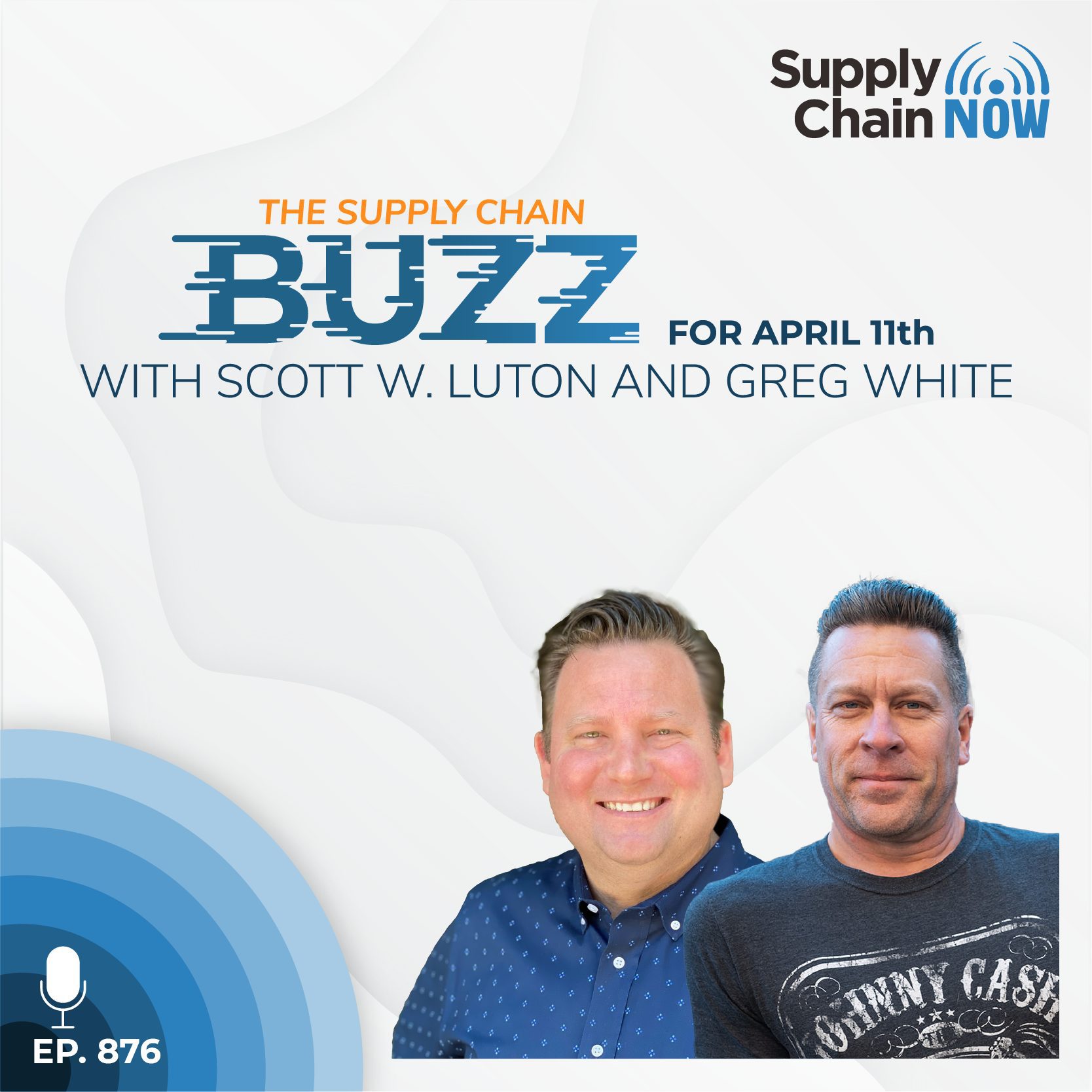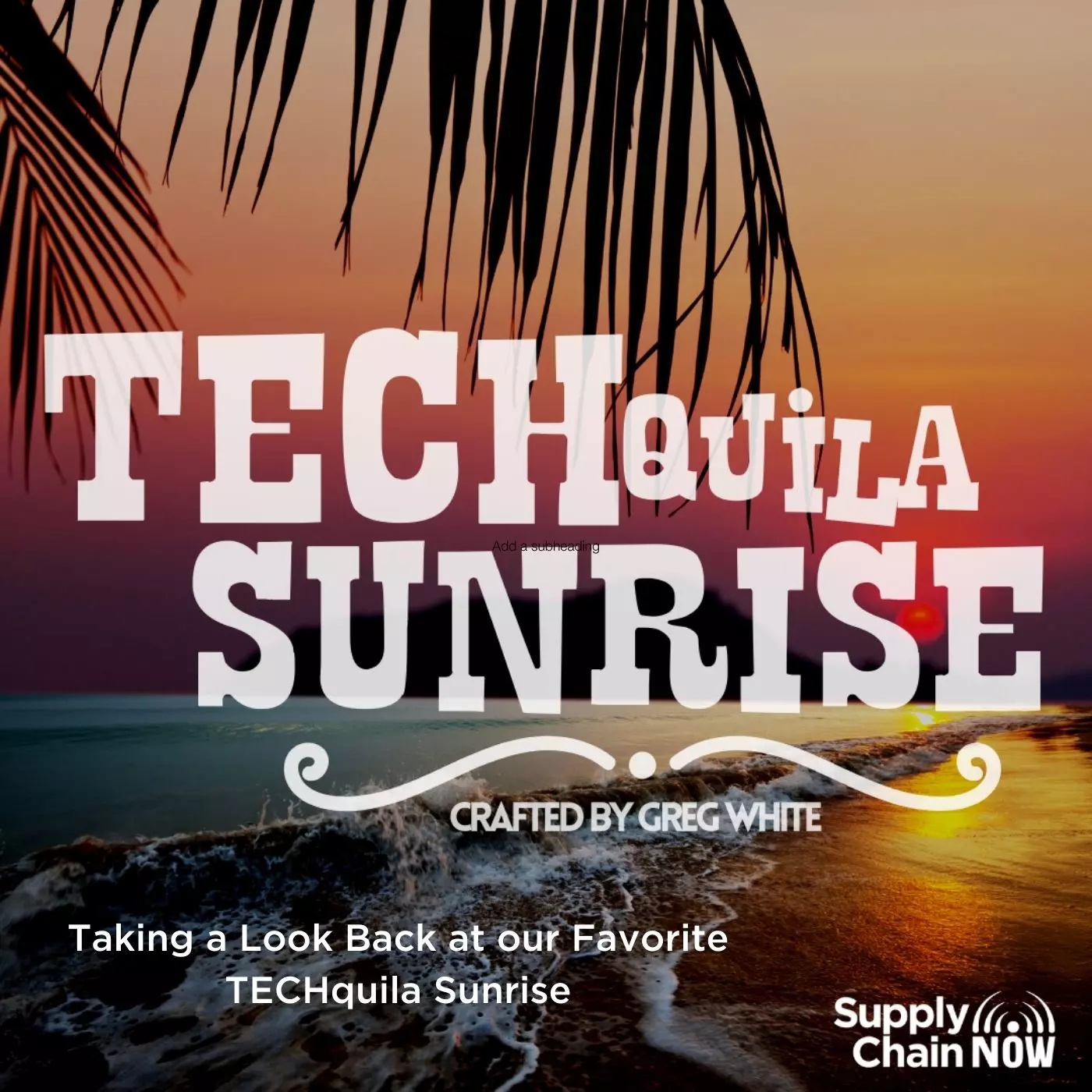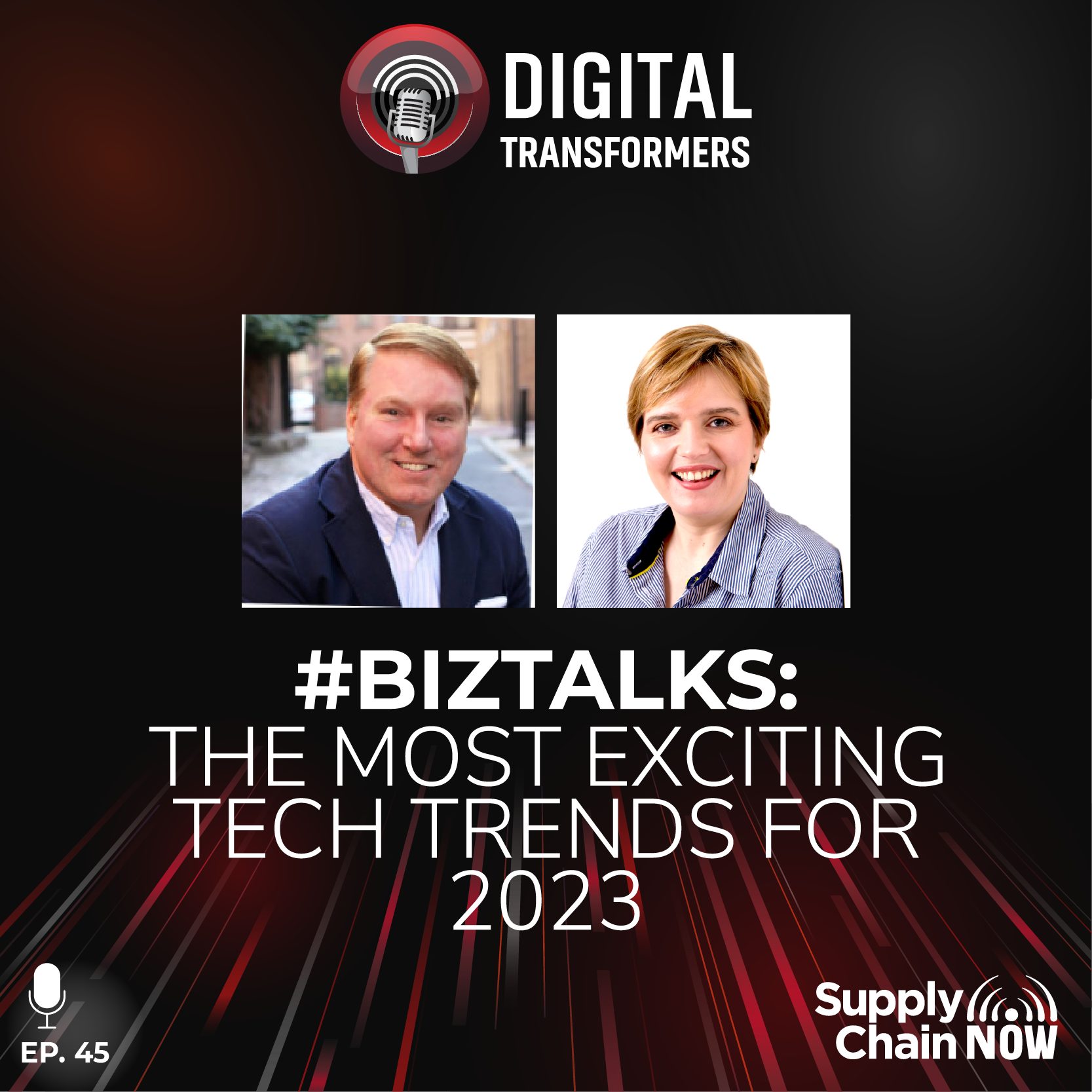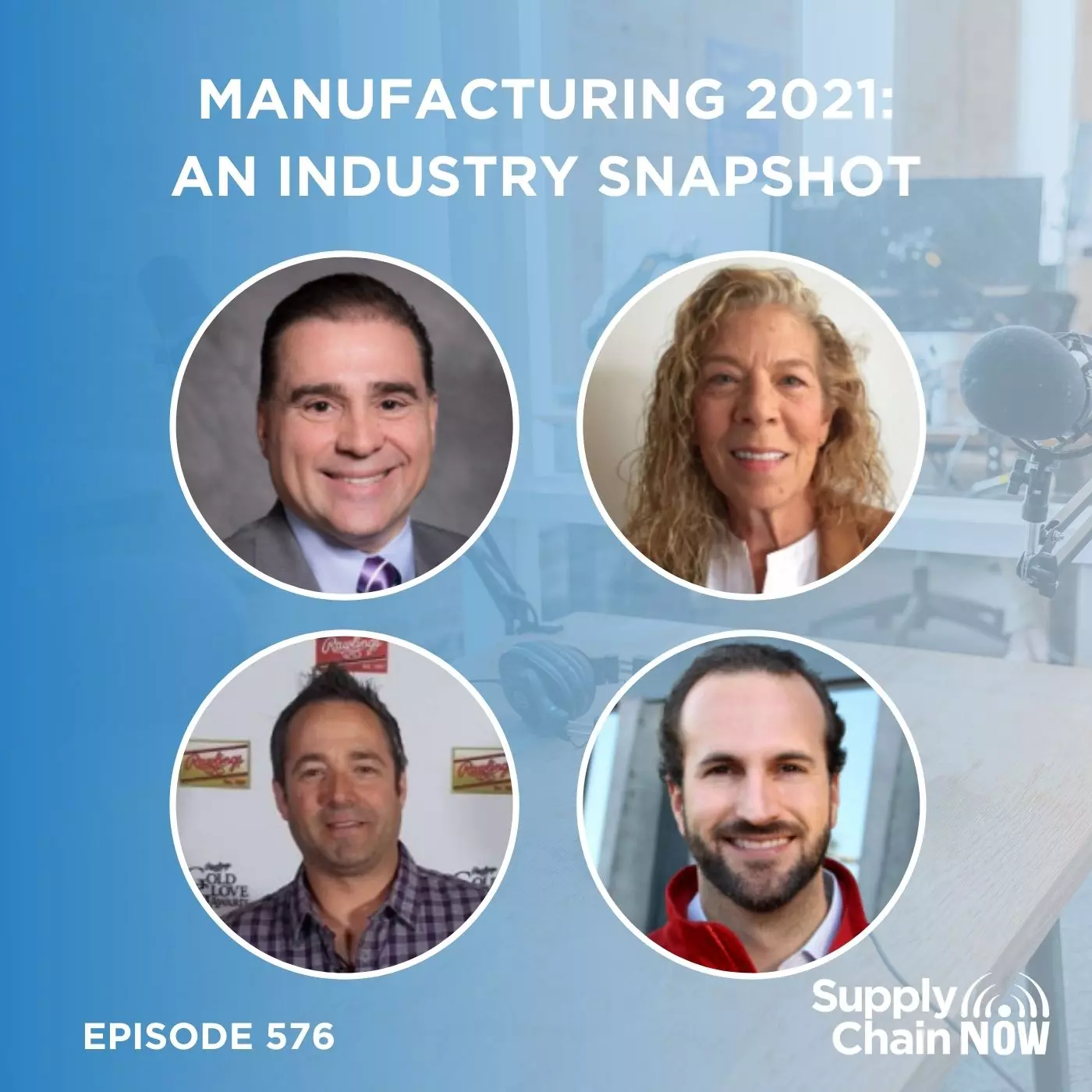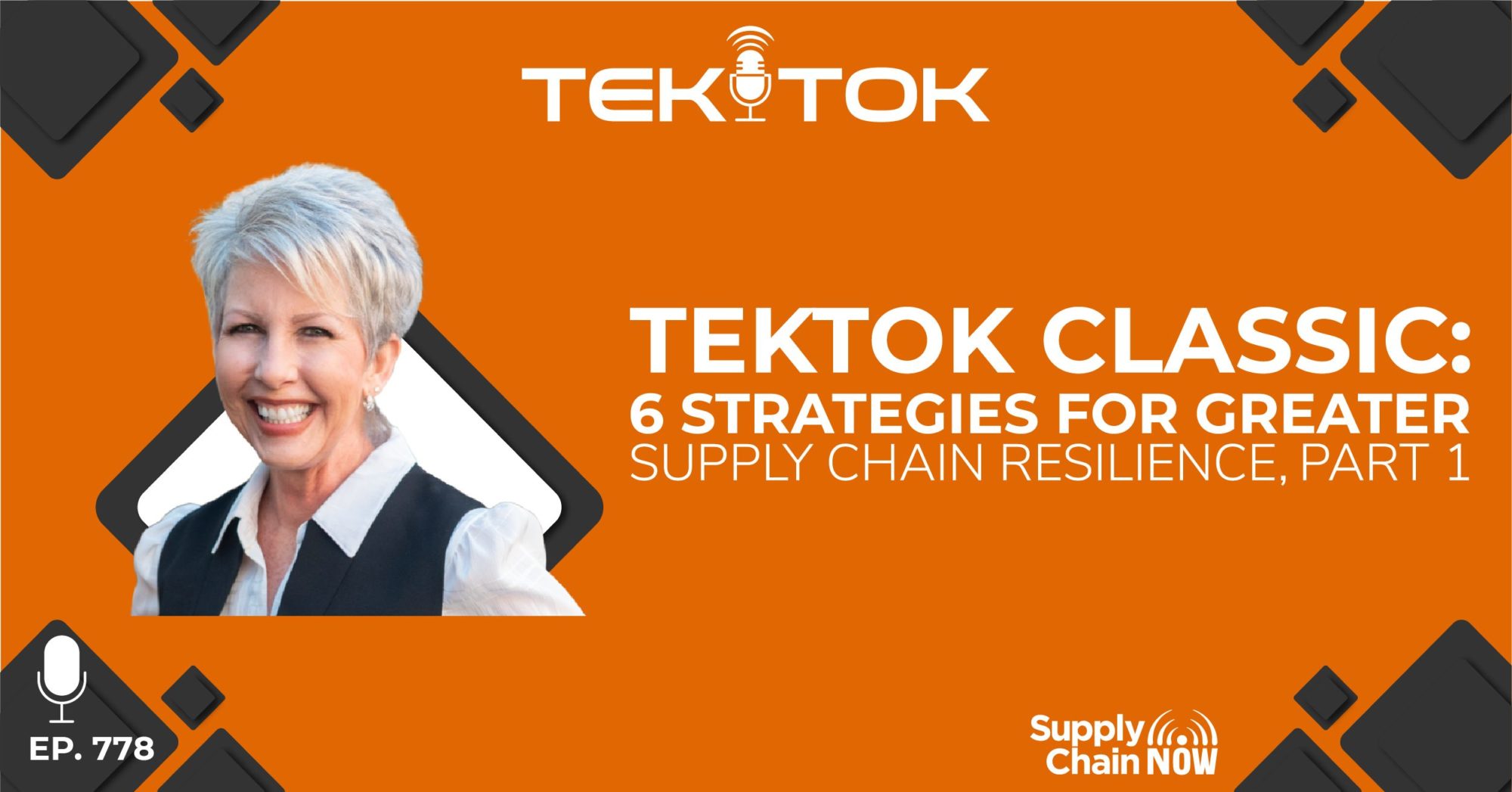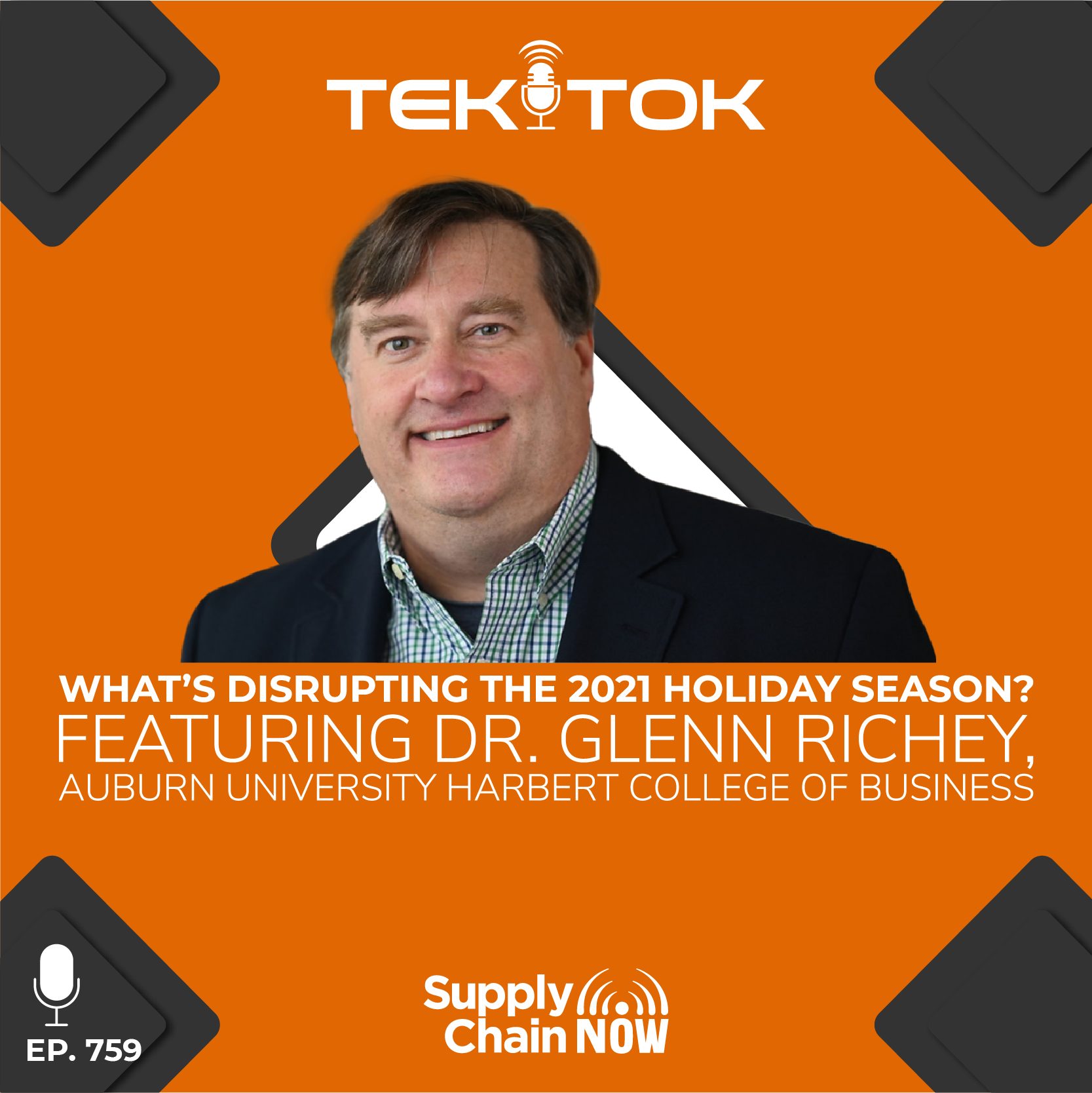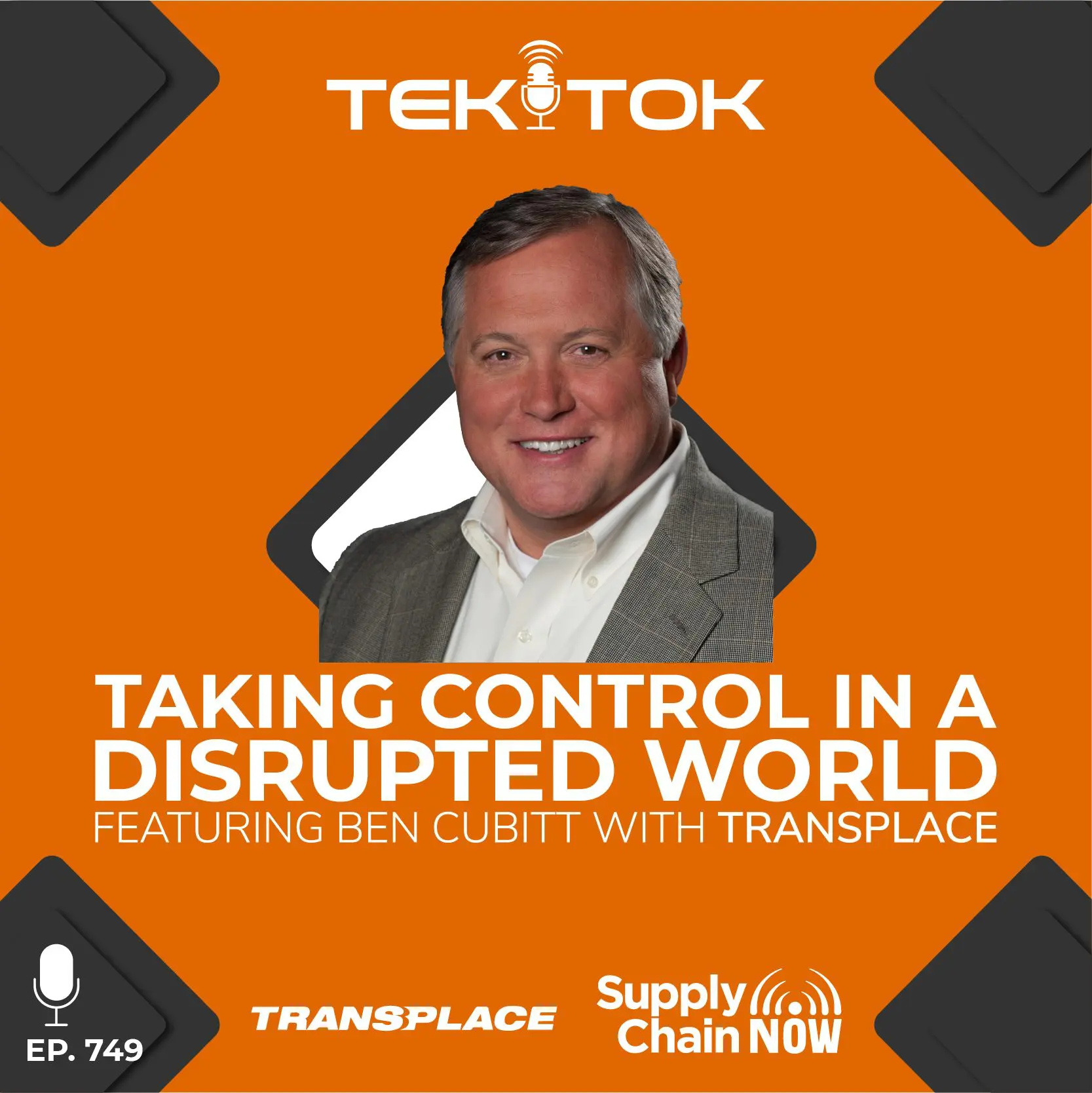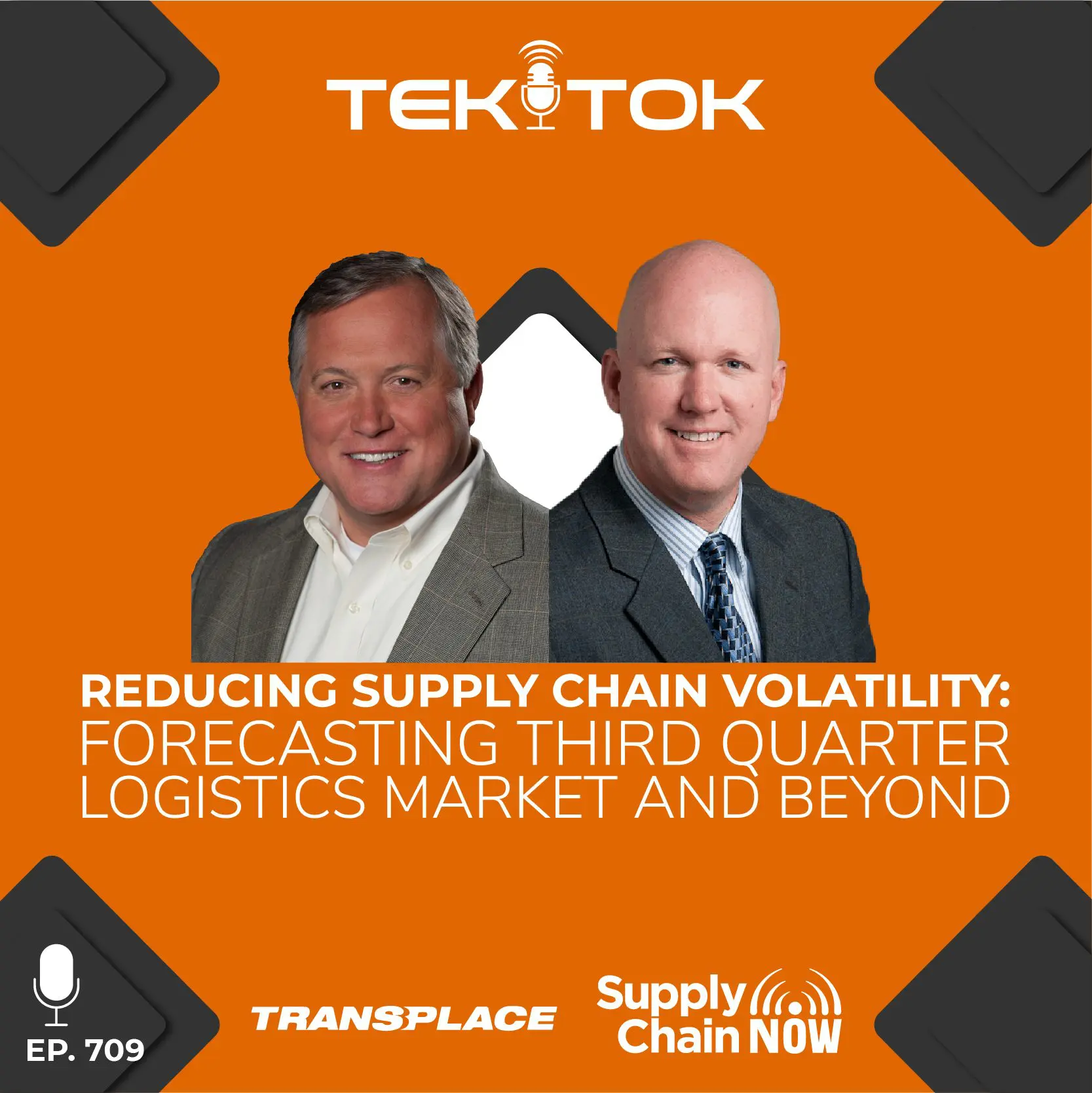Resiliency is a critical business attribute that is not just about surviving but actually thriving in a world filled with unexpected disruptions.
-Karin Bursa
Episode Summary
Resilience has become a priority for many CEOs, BODs, and supply chain leaders as they emerge from the global pandemic and address a multitude of supply chain disruptions. Tune into this episode of TEKTOK to explore Six Strategies to Gain Greater Supply Chain Resilience. Supply chain disruptions are not going away and our businesses will always navigate through uncertainty to serve customers, employees, and shareholders. In this classic TEKTOK episode, host Karin Bursa takes you through strategies to boost resilience, agility, and response.
Episode Transcript
Intro (00:01):
Welcome to TEKTOK Digital Supply Chain Podcast, where we will help you eliminate the noise and focus on the information and inspiration that you need to transform your business, impact supply chain success, and enable you to replace risky inventory with valuable insights. Join your TEKTOK host, Karin Bursa, the 2020 Supply Chain Pro to Know of the Year. With more than 25 years of supply chain and technology expertise and the scars to prove it, Karin has the heart of a teacher and has helped nearly 1,000 customers transform their businesses and tell their success stories. Join the conversation, share your insights, and learn how to harness technology innovations to drive tangible business results. Buckle up, it’s time for TEKTOK, powered by Supply Chain Now.
Karin Bursa (01:14):
All right. Well, welcome Supply Chain movers and shakers. Karin Bursa here, and I am so glad that you’re with me today for TEKTOK, the digital supply chain podcast. We’re going to tackle a topic today about thriving through disruption. And, specifically, leveraging six strategies for greater supply chain resilience. That’s six strategies. These strategies, in fact, are so important that I’m going to break this discussion down into two parts just so you stay with me. We’re going to cover the first three here today in part one. And then, we’ll cover strategies four, five, and six in part two. So, keep in mind, six strategies for greater supply chain resilience, six strategies for greater supply chain resilience. And as always, I want you to message me with your thoughts, your insights, and your recommendations. Be sure to subscribe to TEKTOK wherever you get your podcasts or simply go to supplychainnow.com/programs/tektok, that’s T-E-K-T-O-K, and subscribe. You don’t want to miss a single episode.
Karin Bursa (02:29):
All right. So, let’s get started. The first thing I want you to understand is that your supply chain performance wasn’t designed to work this way. That’s right, your supply chain performance, most likely, was not designed for resilience. In fact, the majority – that’s more than 60 percent of global supply chains – have been designed with one thing in mind. That one thing that is at the core of their design is cost efficiency rather than resiliency or agility. Let me say that to you again, the majority – that is more than 60 percent of global supply chains – have been designed primarily for cost efficiency rather than resiliency or agility. So, this transformation is critical.
Karin Bursa (03:33):
So, as supply chain leaders, we need to be nimble. We need to look at our available capacity while also providing superior service, increasing efficiencies, and controlling costs. But don’t lose sight of the fact that we can’t stop thinking about mitigating risk. That’s right, risk is always a factor. But it can be tackled. It can be addressed. So, as you have so often heard me say, we need to replace inventory with information. And that’s what we talk about here on TEKTOK, the digital supply chain podcast, how do we replace risky inventory with valuable insights, valuable information that allow us to run our business with greater resiliency.
Karin Bursa (04:30):
So, if you’ve been operating in a cost efficient world and haven’t incorporated agility or resiliency, we’re going to dive in to six strategies that are going to help you get there. Again, today, we’re going to talk about the first three of those six strategies that are going to help you gain greater resilience. So, resilience, you know, we hear this term all the time today in media, on podcasts, in discussions, probably in your boardroom as well. So, what exactly is resiliency?
Karin Bursa (05:05):
Well, resilience is the ability of an organization to absorb and adapt in a changing environment that will still enable it to deliver its products in a wide spectrum of market conditions. Resiliency is a critical business attribute that isn’t just about surviving, but actually thriving in a world that is filled with unexpected disruptions. And that is what we’re going to put some strategies in place for. In the wake of the pandemic and so many other disruptions, supply chain leaders have to balance resilience and efficiency to improve the reliability of their global networks. There’s a lot of talk in this area. A strong supply chain today, in 2021, is not immune or sheltered from disruption, but it is one that is resilient in the face of these disruptions. So, remember your resiliency doesn’t mean that you’re not going to be impacted by market disruptions. But what it means is that, you are going to be able to respond and operate effectively despite these disruptions.
Karin Bursa (06:31):
Are you with me? Yes. Yes. I know what you’re thinking right now, resilience comes with increased cost. And you know what? It probably does. As you implement some of these strategies, you will see a shift in your operating costs, but those costs will be countered by the ability to mitigate risk, and to respond, and operate effectively in the face of disruption. And I will tell you that many would argue that the cost of doing nothing may be even more significant. It could even destroy the good work that you and your business have done over the last 20 years to improve supply chain performance. And I’ll tell you that resilience has become a priority for many CEOs, many board of directors, and, yes, each of you as supply chain leaders as you emerge from the global pandemic and you address a multitude of disruptions.
Karin Bursa (07:40):
The supply chains shocks, they occur frequently. And we know that these disruptions are not going away. In fact, given that we are so global in today’s operating world, so global in our suppliers, in our customers, in our ability to produce and distribute that we are likely seeing more disruptions today than we have ever felt in the history of business. So, think about it for just a minute some of these disruptions. There are things like hurricane, tsunamis, volcano eruptions. You can’t do anything about those, but you need to operate your business around them. Then, you have things that are related to business or political spectrum, things like union strikes, port closures, political aspects, and changing tax policies like Brexit, trade disputes, tariff wars, container shortages, wars, financial and economic instability, currency changes. These disruptions are not going away. There is always going to be uncertainty.
Karin Bursa (08:51):
The questions that we need to be asking ourselves is, how accurate our plans are and how quickly can we recalculate and recalibrate to address these needs? If you want to dive in to a couple of these disruptions and think about some tactics that you can use today, check out TEKTOK Episode 599, How To Optimize Contingency Planning and Capacity? It’s a great discussion I had with Jim French and Steve Barber from Transplace. Again, that’s Episode 599, Optimizing Contingency Planning and Capacity In Light of Disruptions. So, check that out.
Karin Bursa (09:37):
Okay. Are you ready? Are you ready to talk about the six strategies for greater resiliency? So, you’re all nodding your head right now going, “Yes. Yes. Yes, I understand the world is more global. Yes, we’re more volatile. Yes, those disruptions are coming in a number of forms and fashions. Karin, what do I do about it?” Well, let’s get to it.
Karin Bursa (09:56):
Let’s talk about the first strategy that you can leverage to gain greater resilience for your supply chain. Ready? That first one is, sense and respond to changing market conditions. We know the market conditions are going to change. How do we sense and respond to those changes? It’s not enough to indicate that a disruption has occurred. We’ve got to have a strategy in place. The ability to replan, recalibrate in light of those changes that is going to make our business more resilient. Yes, we live in a perpetually volatile world. Yes, it’s getting more volatile all the time. And long gone are the days when we had predictable demand patterns when I could rely only on my history, my past performance, my seasonal factors to drive an accurate forecast. You can’t do that anymore. Yes, that’s important. It is a part of the process. But I also need to harness new data sources, new market indicators, and be able to ingest those indicators to replan, and to firm up my forecast, and to look at things like inventory deployment, the ability to produce in short order and distribute quickly.
Karin Bursa (11:24):
So, your number one tool, your number one strategy for greater resilience is the ability to sense market changes and respond. I’m going to say that one more time, sense and respond. So, it’s not enough to have visibility. Visibility alone is not going to get you the results you need. It’s what will you do with that visibility. How will you use it to change your supply chain plans and to drive better performance as you satisfy customer needs. Your visibility cannot stop at your proverbial four walls. It’s not just about what’s happening inside your business. This is an outside in view, right? It’s what the market needs. What products does the market want to buy? What problems do they have? How can our business help satisfy those? And, by the way, that is in an unconstrained world. What will the market need? What will it buy? Where? What are those points of demand? And then, I start balancing that against my ability to respond.
Karin Bursa (12:39):
And we must get out beyond our four walls in order to really harness new market indicators. Start thinking about your trading partners. Who are your trading partners? Your trading partners are your customers, your suppliers, your co-packers, your co-manufacturers, your 3PL or distribution partners. These are your trading partners that play an important part in bringing products to market. For customers, I’m satisfying customer demand. With suppliers, co-packers, manufacturing, these are my partners that are helping me deliver those products to market. So, yes, I need to sense changes in market conditions and respond. And part of that response may be outside of my proverbial four walls. So, I need the ability to work with that trading partner network to become more resilient and more efficient.
Karin Bursa (13:38):
So, let’s talk about some of the shortages that are popping up around the world. Some of them are expected, yes. But some of them are quite surprising. I mean, we’re looking at things like microchips, it’s impacting everything from automobiles to children’s toys. Chicken – yes, I said chicken. So, everything from your ability to have hot chicken wings to putting food on the table at home. Lumber, gas, steel, metals, plastic, chlorine, and even catsup packages. That’s right. I know that sounds silly, but there is real shortages in the area of catsup packets because we’re doing more takeout. We’re not serving bottles of ketchup and condiments on the tables at restaurants anymore. We’re doing single serving sizes. A change in inventory form and function.
Karin Bursa (14:29):
Hey, check out TEKTOK Episode 639, that’s 639, The Bounce Back Begins. It was a really interesting conversation Scott Luton and I had with Enrique Alvarez, who many of you know is the host of Logistics with Purpose and the host of Supply Chain Now on Espanol, and Kelly Barner, host of Dial P for Procurement. We tackled these topics under the umbrella of The Bounce Back Begins, so take a listen there. Again, Episode 639. All right.
Karin Bursa (15:12):
So, there you have it, strategy number one for gaining greater resilience. What was it one more time? Stay with me. That’s right. Increase your ability to sense and respond to market changes by harnessing new demand and market signals for an unconstrained demand view to then be satisfied, a.k.a. constrained, by your business’s ability to respond to that demand.
Karin Bursa (15:43):
Okay. So, strategy number two – I wish I had a drum roll here. Strategy number two for greater resilience is, inventory and capacity network-wide .That’s right, inventory and capacity network-wide. So, if I sense changes in demand, how do I then respond to those changes? Will I do it with inventory or I do it with capacity? And capacity is the ability to produce, store, or move those goods to market. You’re probably thinking, “Geez, Karin. That’s easy for you to say, but it’s really hard to do.” Well, let’s talk about the basics for just a minute.
Karin Bursa (16:26):
Greater resilience, inventory and capacity network-wide. If we think about it in the most basic terms, buffer is something that you have when it comes to capacity. That’s production capacity, storage, capacity, distribution capacity, and, oh, by the way, inventory capacity. So, buffer inventory. What’s another word for buffer inventory? That’s right. That’s right. Safety stock. Yes. So, the challenge is that, these buffers can be expensive if they’re not optimized, if they’re not tied to specific business scenarios. In the past, we may have had a really hard time justifying some of these buffers to the C-suite. At the time, that C-suite was really focused in operating in what? Just a cost efficient measure. Today, I guarantee you, that philosophy has changed significantly. And that C-suite now needs to know how to operate with greater resiliency.
Karin Bursa (17:37):
So, leading companies have used buffers in the form of surge capacity. Surge capacity, an opportunity to ramp up production or distribution for new or growth areas in my business. Well, you know what? You can use that network of contract manufacturers and co-packers strategically, not just tactically. It can certainly be part of your surge capabilities, but it can also be part of your day-to-day operating network.
Karin Bursa (18:13):
So, check out TEKTOK Episode 546, where I discuss Three Things That C-Level Executives Need To Know About Sales and Operations Planning and Inventory Optimization. Again, that’s episode 546, where I discuss Three Things C-Level Executives Need To Know About Sales and Operations Planning and Inventory Optimization. It is possible to significantly increase your resiliency while reducing inventory and boosting service. It is. It is. You can do it. Okay.
Karin Bursa (18:55):
So, strategy number three, strategy number three for greater resilience is, establishing a multi-sourcing network that is diversified. Multi-sourcing network that is diversified. You can see how these things are coming together, right? Sense and respond. Look at my capacity in areas of production, distribution, and storage. And, now, look at my trading partner network in a way that has eyes towards multi-sourcing and diversification. Okay. So, you hear this in a number of different ways about gaining agility with regional strategies, co-locating production. Instead of offshoring, you may be hearing more and more about nearshoring. So, let’s talk about this for just a minute.
Karin Bursa (19:54):
So, in response to the U.S. and China trade wars – so this has been going on for well over two years – many companies had already started to diversify their sourcing and manufacturing basis. So, moving out of China and moving in to other geographies. So, moving out of China, moving into India or Mexico, for example. Well, disruptions to supply chain operations have certainly intensified in the past few years. First, around some of these trade and tariff discussions. Also, around some of the risks that we discussed with natural disasters, tsunamis that have occurred, geopolitical impact. Oh, and by the way, the little thing of having a ship that happen to be disrupting movement across the Suez Canal.
Karin Bursa (20:48):
But let’s step back for just a minute and see if we learned from some of these past challenges. If we think back to 2011, there was a major natural disaster that occurred in Japan and Thailand, or that impacted Japan and Thailand, and this disrupted supply chains around the world. So, a natural disaster impacting predominantly Japan and Thailand disrupted supply chains on a global basis. For a period of time, the automotive industry with nearly finished cars could not be shipped because they were missing an often relatively inexpensive component. Now, here we are in 2021, and we are seeing the same thing as a result of the chip shortage in a post-pandemic marketplace, sense and respond. Let’s be sure that we are leveraging a diversified supply chain so that we can move product to market even when disruptions occur.
Karin Bursa (21:59):
So, multi-sourcing is a really powerful strategy that is going to allow you to harness more resiliency and mitigate risks. To craft a multi-sourcing strategy, supply chain leaders have to know their suppliers. You’ve got to work with them. You’ve got to gain visibility. You’ve got to synchronize operations. And that is done through digital supply chain initiatives. Replace inventory with information. Synchronize and trust your trading partners. Share demand needs with them and have them share the visibility of where they are. And producing and delivering high quality products to your business or to your customers. And do not be single sourced. Be sure that you’ve got the ability to surge or source with multiple trading partners.
Karin Bursa (22:59):
I talked a little bit just a moment ago about nearshoring. Nearshoring is about bringing manufacturing back closer, nearer to market demand. This is going to allow you to gain speed and control with production partners that are located, so there’s less time required to ship, or import, or export product to the market that it’s serving. So, that could take the shape of regional or local suppliers. That could take the shape of postponement strategies. You must be thinking about your supply chain beyond your four walls. Today, in 2021, your supply chain is really an ecosystem. It is a partnership between trading partners. You need visibility and collaboration so that you can orchestrate what’s happening for your business to satisfy the customers that you serve quickly, with high quality goods, and a more predictable fashion.
Karin Bursa (24:07):
And the good news is that, there are supply chain digital solutions that are going to help you. In fact, check out TEKTOK Episode 629 for my recent interview with Jason Tham, the CEO of Nulogy. That’s right, 629. You’re going to hear how Nulogy is helping innovative consumer goods brands, and co-packers, and co-manufacturers, and 3PLs, third-party logistics providers, helping them as a ecosystem, as a network to increase velocity, quality, and resilience.
Karin Bursa (24:48):
And remember, now more than ever, your CEO, your board of directors, your supply chain executives, except the fact that they need to invest to become more resilient and to gain greater agility. And you know what? To protect your business so that you do more than survive. It allows you to thrive. That’s right, thrive. So, there you have it, the first three of six strategies for greater resilience. The first, sense and respond. Harness new data, new market signals, generate an unconstrained demand plan, and then begin to map that to synchronize that on how it will be satisfied by your ability to respond to source, produce, distribute those goods to market.
Karin Bursa (25:38):
Strategy number two, inventory and capacity network-wide. Understand and optimize your inventory needs, the inventory form and function, your safety stock policies, look at that across your global network, and insert greater precision around how you satisfy that market demand. We need to start thinking about this from a continuous planning perspective. Strategy number three, multi-sourcing and network diversification. This is going to allow you to gain greater resilience and agility. It will, trust me. You’ll have the ability to introduce new products faster. You’ll be able to respond to market changes with greater agility. And you will be diversifying your business. You will be reducing risk. And you need to connect with those trading partners to get that visibility, to synchronize those operations.
Karin Bursa (26:38):
We’ll talk more about some of those strategies in part two of this discussion. Remember, this discussion, six strategies for greater resilience. We’ve just discussed strategies one, two, and three. And I hope that these insights are going to raise your supply chain IQ. And on the topic of raising your supply chain IQ, be sure to check out the wide variety of content that is available to you on supplychainnow.com. And while you’re there, find TEKTOK, that’s T-E-K-T-O-K, and subscribe. You don’t want to miss a single episode. This is Karin Bursa, host of TEKTOK, the digital supply chain podcast, helping you to eliminate the noise and focus on the information and inspiration you need to transform your business and replace risk inventory with valuable insights. We’re going to see you next time on TEKTOK, powered by Supply Chain Now.
